Introduction
Seminars are dynamic educational experiences that foster deep engagement and active participation in a particular subject. They go beyond traditional lectures by encouraging collaboration, critical thinking, and the exploration of diverse viewpoints. In both academic and professional contexts, seminars provide a platform for interactive learning, where participants contribute to the conversation and consider real-world case studies.
These seminars not only enhance knowledge but also nurture a culture of innovation and prepare individuals to tackle the complexities of the modern world. With their focus on practical application and the exchange of ideas, seminars are vital for personal and professional development, fostering networking opportunities and equipping participants with the skills and expertise needed to make informed decisions. Whether in-person or online, seminars offer a unique synergy of learning and networking, making them a valuable investment for individuals and their organizations.
Definition of Seminar Classes
Seminars are dynamic educational experiences that bring together individuals to deeply engage with a particular subject. They are more than just an opportunity to acquire knowledge; they enable participants to actively exchange insights, question each other’s thinking, and broaden their understanding through a collective process of growth. In these interactive environments, which can occur in both academic and professional contexts, attendees are encouraged to contribute to the conversation, pose questions, and consider various viewpoints.
During a workshop, each stage, starting from investigation to analysis, presents a chance for cooperative learning. Consider, for instance, a workshop centered on extensive information examination. It would guide participants through the intricacies of handling large-scale online data, from initial cleaning to intricate visualization techniques, using real-world case studies like LaPlume’s examination of data analysis practices. This hands-on approach helps crystallize learning, making the complex accessible.
The transformative power of educational workshops is echoed by Eric Mazur, an academic dean at Harvard University, who emphasizes that education transcends mere information transmission. It’s about creating an environment where students collaborate and build upon the knowledge base. It’s this philosophy that emphasizes the importance of workshops.
Seminars often revolve around purposeful questions that spur thought and discussion. For instance, asking participants to consider the multifaceted impact of an earthquake on a low-income city can spark a rich conversation exploring economic, social, and environmental factors. Such structured questions provide a scaffold that enhances the depth and quality of dialogue.
Despite the recognized value of seminars, traditional lecture-based education, particularly in statistics, has been critiqued for its one-way communication and lack of real-world context. Research has shown that engaging teaching methods, which include active student participation and the opportunity to learn from mistakes, lead to deeper understanding. Technology enhances this process, enabling visualization and interaction that align with the styles of today’s tech-savvy students. The incorporation of technology not only enables education but also democratizes it, allowing greater access on a global scale.
In the end, seminars embody a vital pedagogical method that promotes intellectual development, cultivates a culture of innovation, and prepares individuals to address the intricacies of the contemporary society. They are a testament to the evolving landscape of education, where the exchange of ideas and experiential learning are fundamental to developing the skills, knowledge, and values needed for active and engaged citizenship.
Purposes of Seminar Classes
Seminar classes are multifaceted educational experiences that cater to an array of purposes, often determined by the specific needs of the subject matter and the objectives of the attendees. One main objective of workshops is to explore the analytical phases of research, where attendees interact with quantitative analysis through statistical modeling. They master the procedure from information cleansing to visualization, equipping them with the abilities to understand and handle challenges in information collected online.
In a seminar setting, attendees are introduced to diverse research design alternatives, from human-centered design to agile research, and learn how to apply the most fitting study design. They are trained to select appropriate samples, control information quality, and develop high-quality questionnaires that yield actionable results. Seminars also focus on the crucial task of selecting the right analytical technique that aligns with the data at hand, and they emphasize the importance of creating reports that effectively communicate insights to decision-makers.
Furthermore, academic talks can serve as a medium for discussing recent advancements in specific fields, such as the intricacies of cardinality estimation in database management, or the hierarchy and rank of cli Polish groups in mathematical theory, as presented in various scholarly presentations. Participants are exposed to up-to-date information and open problems, fostering a dynamic educational environment.
Another aspect addresses the changing landscape of online education. They explore the day-to-day operations of virtual learning, the distinctions between e-learning and online education, and the technologies that make learning engaging and interactive. This knowledge is particularly beneficial for those seeking flexibility in managing academic and other responsibilities.
Using case studies and real-world examples, the sessions offer a substantial comprehension of different subjects. For instance, they offer insights into the language of finance, breaking down complex concepts and highlighting the importance of understanding accounting terms for corporate financial analysis.
In the end, workshops function as a knowledge center where attendees can gain insights into the wide range of regression models, their uses, and the proper interpretation of data. With an emphasis on practical implementation, the sessions are tailored to equip individuals with the knowledge to make well-informed choices and improve their professional or academic endeavors.
Knowledge Sharing and Acquisition
Seminars play a crucial role in the educational landscape, providing a dynamic platform for knowledge exchange and intellectual development. They offer a unique environment where participants can absorb expertise from seasoned professionals and delve into discussions that illuminate various aspects of the topic at hand. Active participation in workshops enables participants to expand their perspectives and enhance their understanding of intricate topics. For example, a case study on a physics teaching community, as documented in arXivLabs, highlights the transformative impact of collaborative education in enhancing comprehension and tackling challenging courses. The interactive format of the event mirrors the principles of open education pedagogy, fostering a learning community that values openness and excellence. As highlighted by recent research approved by the University of Maryland College Park, such educational interventions are particularly beneficial at Minority Serving Institutions, where they contribute significantly to student success. Furthermore, workshops are a representation of continuous innovation in higher education, equipping learners to navigate the diverse challenges of today’s world through a comprehensive education that promotes a culture of innovation with significant community impact.
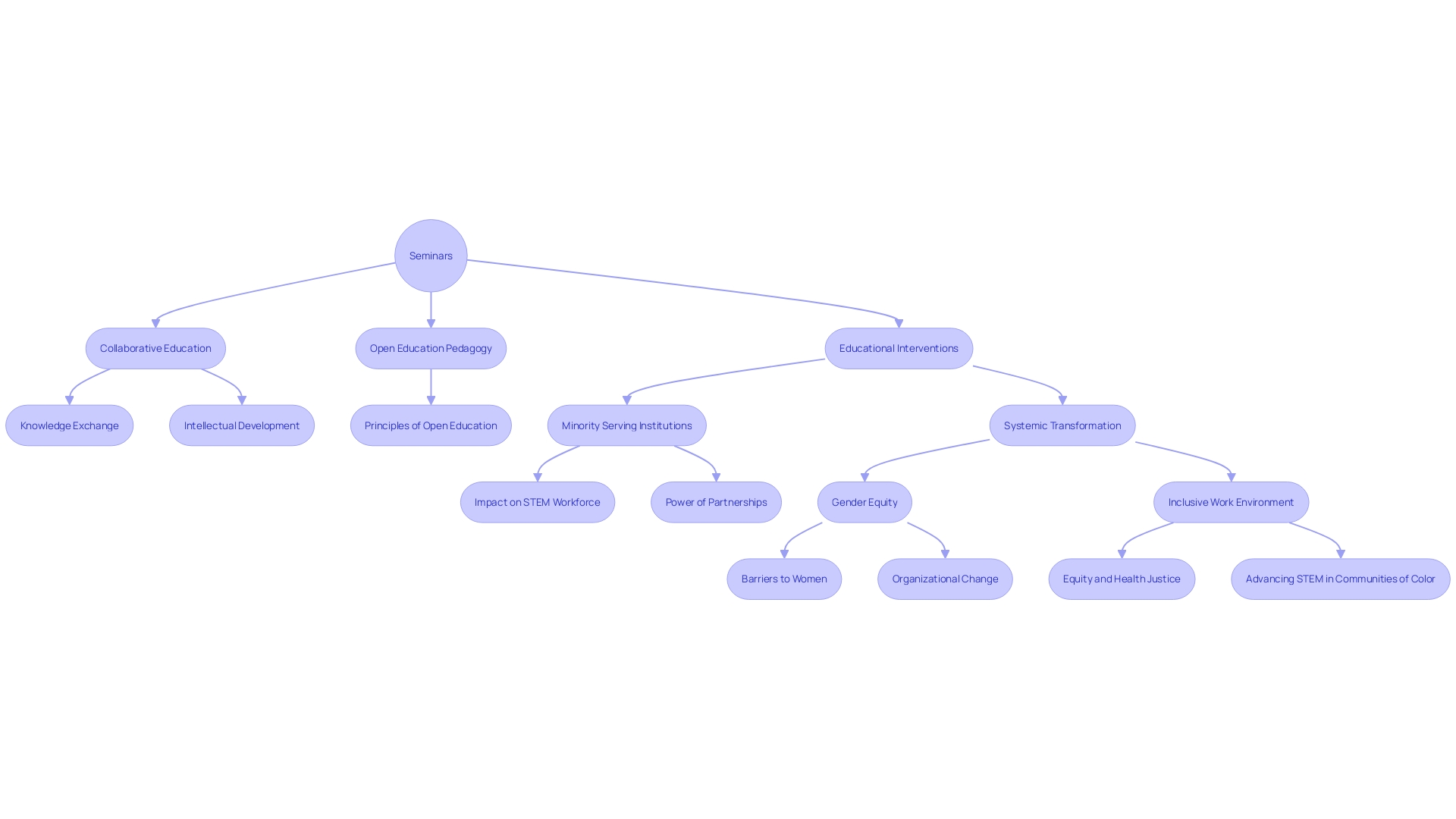
Critical Thinking and Analysis
During interactive sessions, attendees actively analyze health-related subjects, like products, services, and consumer rights, while navigating through a minefield of misinformation and potentially deceptive practices. By critically examining case studies and other relevant information, including those related to the health marketplace, attendees cultivate their ability to discern between factual information and misleading claims. For example, in the study of consumer health, the focus is not only on making informed choices but also on avoiding the pitfalls of quackery and fraud. This critical examination is crucial, especially in light of the COVID-19 ‘infodemic’—where discerning reliable health claims from misinformation is a matter of public safety and well-being.
Furthermore, the structure of the workshop frequently includes a practical method for examining data, which involves data cleaning, analysis, and visualization, particularly with extensive web-based datasets. This practical experience is vital in an age where digital literacy and the ability to interpret complex information are paramount. As highlighted in recent discussions on youth decarbonisation and the Francis Review, the ability to think critically is essential for informed participation in societal issues and policy-making. The seminar environment fosters this skill by challenging participants to question underlying assumptions and consider various perspectives through interactive discussions, thereby preparing them to make thoughtful and educated decisions in both the health sector and broader societal contexts.
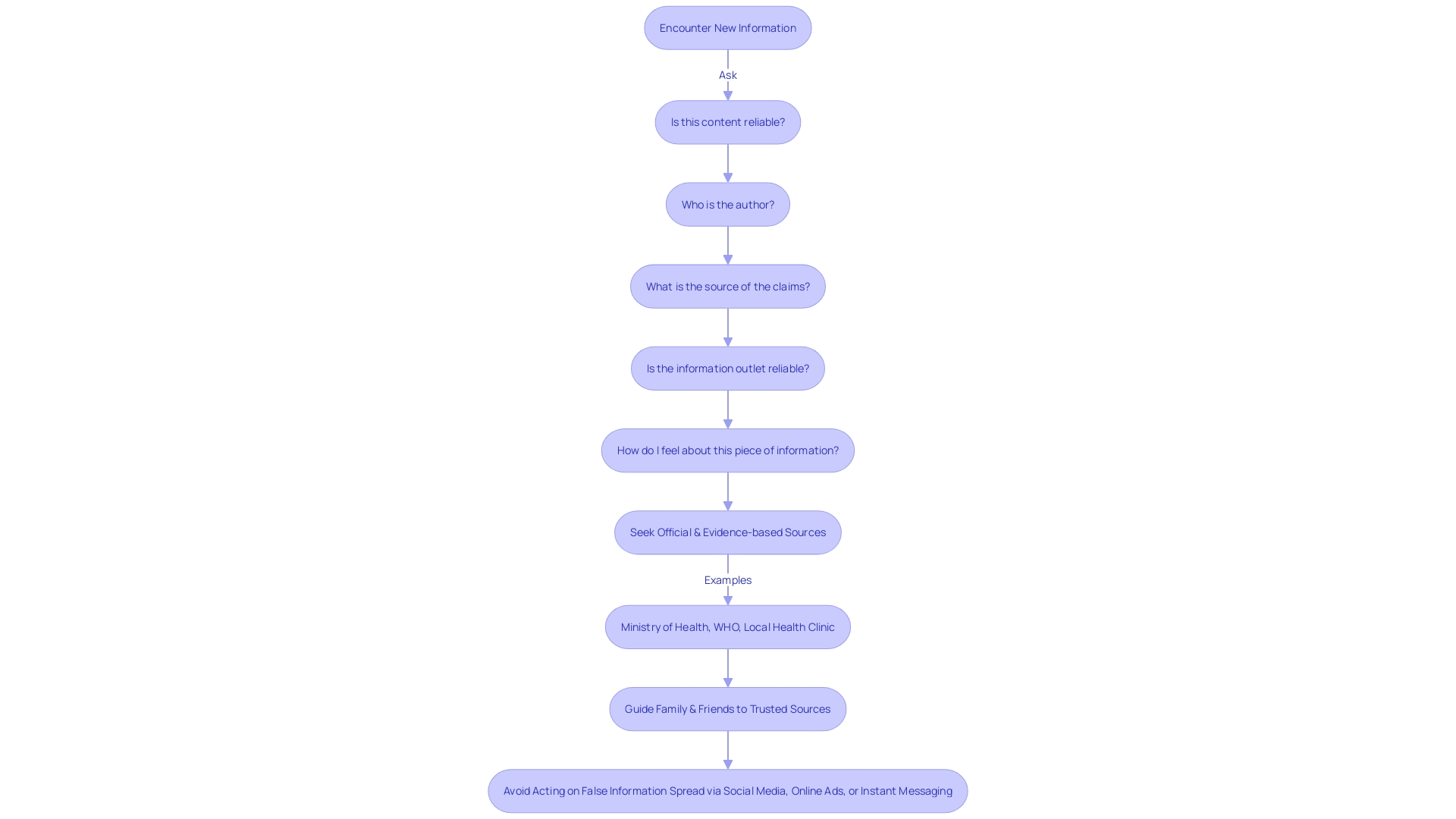
Collaboration and Networking
Seminars play a crucial role in not just imparting knowledge, but also in facilitating collaborative education and professional networking. Participants who engage in these interactive classes benefit from the collective wisdom and diverse perspectives of their peers and industry experts. Sharing insights on platforms like Feedback Fruits or Perusall, as seen in the educational approach called Social Annotation, has proven to strengthen the exchange of ideas and enhance the educational experience. Such collaborative tools are especially valuable in fields that require hands-on practice, like software engineering, where students learn to navigate complex topics like programming through group interaction and discussion.
Moreover, seminars encourage the formation of professional relationships that may lead to collaborative projects and career advancements. For instance, the arXivLabs framework demonstrates the productive outcomes of collective efforts, showing how individuals and organizations working together under shared values can lead to innovative developments and the enhancement of community resources.
Furthermore, the influence of closeness in education and networking cannot be exaggerated. The layout of residential campuses, such as that of Harvard Business School’s, is founded on the idea that regular interactions cultivate a more powerful educational environment, indicating that even in an era of technology, proximity can enhance the possibility for information exchange and networking.
The importance of face-to-face collaboration is echoed in the sentiment that some knowledge—particularly that which is new and not yet defined—requires presence and observation to be fully grasped and applied. This principle is supported by studies suggesting that while remote collaboration is possible, it is the local, in-person interactions that often drive innovation, especially in knowledge-dense urban environments.
To sum up, classes that involve interactive sessions provide a distinctive combination of knowledge acquisition and establishing valuable professional relationships, empowering participants not only to acquire skills but also to create a network of contacts that can facilitate their personal development and contribute to the wider community.
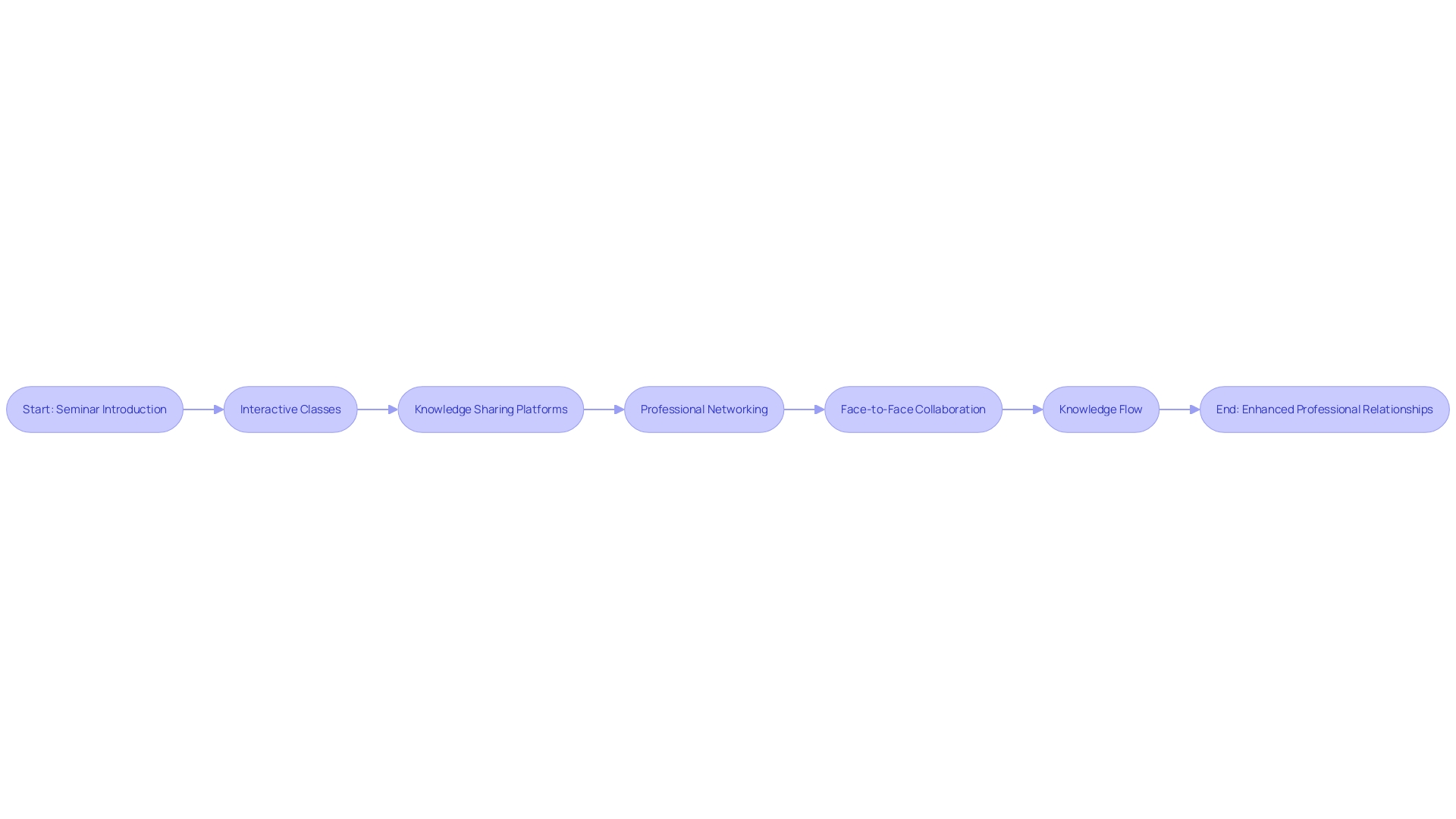
Personal and Professional Development
Seminars are much more than just academic gatherings; they are incubators for professional and personal growth. Participating in workshops provides individuals a great chance to improve their public speaking abilities, an art that extends beyond delivering impressive speeches but also involves effectively conveying messages to any number of people, whether it’s a small group or a large crowd. It’s a skill that can be mastered with practice and perfection as highlighted in the Socratic method of dialogue, where interaction is key to deeper understanding and learning.
Through engagement in educational workshops, participants can greatly enhance their ability to deliver presentations. This is crucial in a world where the ability to present ideas clearly and persuasively can make a substantial difference in professional settings. The prompt response and helpful evaluation that are inherent to workshops function as valuable instruments for participants to enhance their skills and develop as effective communicators.
Furthermore, statistics from the Association of American Law Schools underscore the real-world impact of skill application; law students collectively contributed over 3.2 million hours in legal services, equating to an estimated value of $104.6 million. This showcases the concrete advantages of hands-on experience acquired through participation in workshops.
Furthermore, workshops play a role in the socio-emotional growth of individuals, as indicated in a research conducted by Maggie Mahmood and her team, emphasizing the significance of establishing ease and managing challenges within a community of practice. Whether it’s a traditional classroom, a bar, or under a tree, the versatile format can thrive in various settings, fostering a sense of confidence and community among participants.
Surprisingly, even in an era where online learning and AI-generated content are flourishing, the workshop remains a resilient and adaptable educational format. It persists and flourishes by remaining accessible and by facilitating engaging discussions on diverse topics, from the rise of artificial intelligence to social movements, as seen in the offerings of the Brooklyn Institute for Social Research.
In conclusion, this educational event stands as a vital tool that not only enhances knowledge but also develops crucial life skills, supporting individuals in their journey to become more articulate and influential contributors in their respective fields.
Types of Seminar Classes
Seminars are dynamic educational environments where the form and function are tailored to the subject matter and goals of the session. For example, policy workshops frequently include case discussions where students actively participate in real-life situations, such as those from Harvard’s Kennedy School or Syracuse’s Maxwell School. These cases pose moral quandaries and uncertain outcomes, inviting analysis through various lenses such as cost/benefit analysis and the rule of law.
In the field of leadership, sessions can explore the various forms of leadership and practical abilities like personnel hiring and retention, crucial for any newly appointed journalism manager. The teaching method might include exercises in delegation to equip future leaders with hands-on experience.
For students in science and engineering, workshops offer an opportunity to refine their critical thinking abilities. They’re taught to frame scientific narratives, considering both known and unknown factors, a crucial step in developing a scientific mindset. This approach has evolved to where almost every first-year student is now exposed to engineering principles directly from experienced professors.
Moreover, classes in research and writing instruct students on how to create research papers with distinct, logical arguments divided into well-structured sections. They also learn the importance of a thorough background section that offers documented information on the organization, country, industry, product, or practice being studied, ensuring the reader is well-informed.
In the field of finance, educational events have the potential to demystify the language of finance, stripping away the complexity and focusing on what truly matters for corporate financial analysis or valuation. This is crucial for understanding the core principles and information that constitute the basis of financial decision-making.
Furthermore, workshops on regression models provide attendees with understanding of the range of models accessible, how to select the appropriate one for their information, and how to accurately analyze the outcomes. This is invaluable for researchers, analysts, data scientists, and other professionals who rely on statistical analyses to inform their work.
Each of these workshop varieties serves a distinct purpose, from developing leadership skills to enhancing scientific inquiry, providing practical finance knowledge, or navigating the complexities of statistical analysis. The common thread is the emphasis on active participation, critical thinking, and real-world application, which are essential components for an effective learning experience.
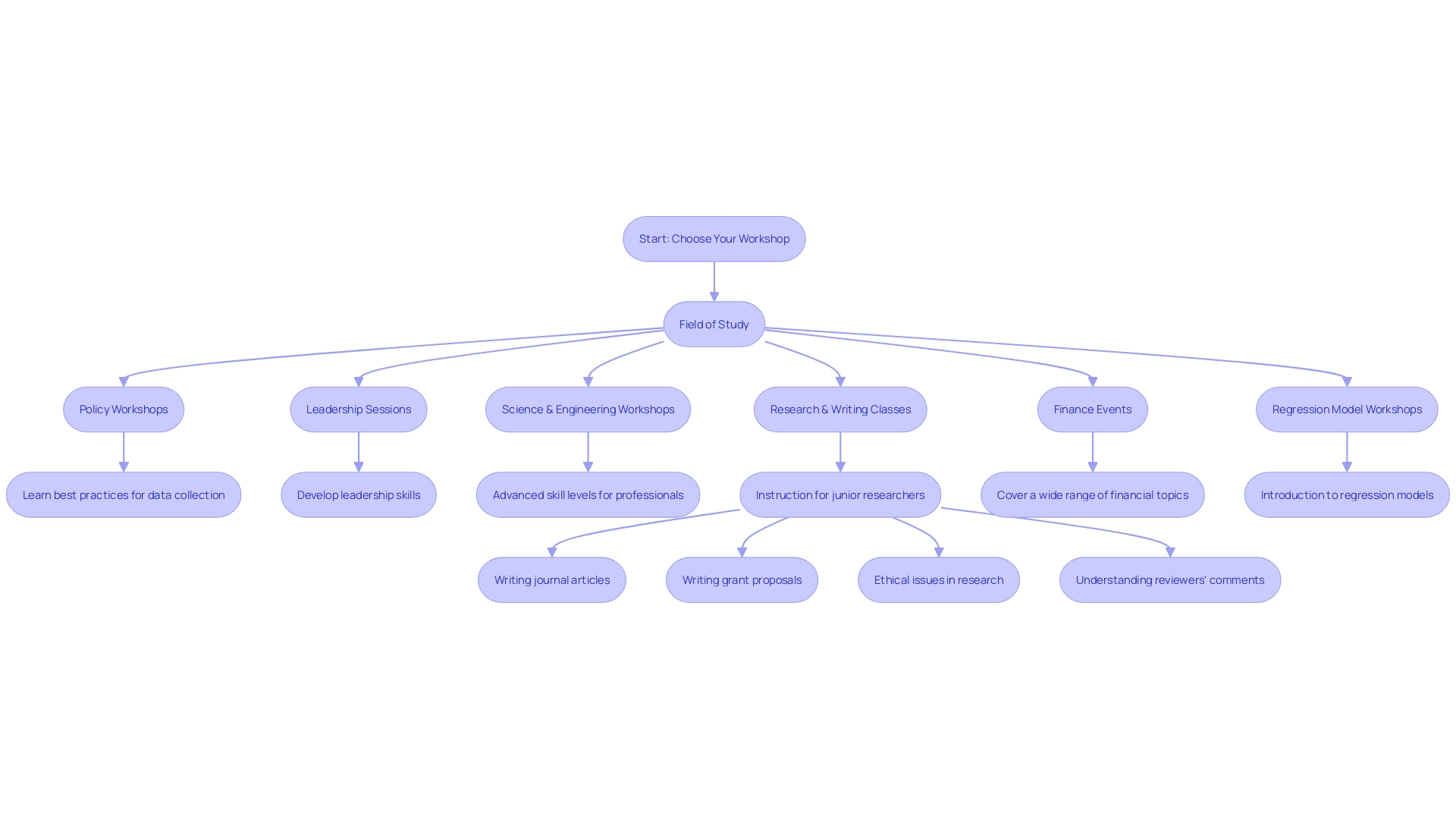
Understanding Seminar Classes: Significance and Purpose
Universities and colleges provide fertile grounds for academic gatherings, where attendees are immersed in a rich environment that promotes deep exploration of academic subjects and research areas. Faculty and field experts often facilitate these sessions, creating a platform for scholarly discussion and enhanced understanding of complex topics. A prime example of this is the Ten-Step Process for Teaching and Learning with Research Cases, which demonstrates the session’s ability to convert large-scale information analysis into an approachable and practical science. By carefully examining the different stages of data analysis, participants tackle practical problems and solutions, strengthening the workshop’s ability to enhance analytical skills.
Additionally, academic gatherings act as a hub for stimulating discussions, as demonstrated in the Toronto Set Theory Symposium, where innovative mathematical theories are shared in a way that captivates a wide range of academic minds. These gatherings are not just theoretical echo chambers; they actively contribute to the betterment of educational environments, as suggested by research indicating that a nurturing academic atmosphere can significantly bolster faculty productivity.
In this dialogue of ideas, students and professionals alike are encouraged to engage with current studies, such as those profiled in University World News, which shed light on the intersection of education and societal challenges. Through structured research papers and well-crafted background sections, participants are guided on how to effectively present and discuss academic work, leading to a comprehensive understanding and the ability to place new research within the wider scholarly landscape.
In essence, academic workshops are a critical pedagogical tool, enriching students’ learning experiences and providing a collaborative space for intellectual growth. They represent an essential component of academic life, where knowledge is not only conveyed but also critically examined and expanded upon.
Professional Seminars
Professional workshops serve as a foundation for personal and institutional development within specific industries. These events are meticulously planned, often beginning six months to a year in advance, to ensure that content remains fresh and relevant. Given the constantly changing nature of professional fields, events are customized to mirror current trends and technological advancements, rendering them an essential resource for improving professional skills. Participants have the opportunity to delve into subjects such as leadership growth, project coordination, and marketing tactics, all while the program’s syllabus aligns with the most recent industry changes.
Furthermore, professional conferences offer a platform for unmatched networking chances. They bring together industry peers, mentors, and leaders, fostering an environment ripe for collaboration and the formation of valuable connections. These interactions can lead to career advancements and the sharing of innovative ideas.
Considering the changing nature of professional development, conference organizers and attendees alike acknowledge the significance of adjusting to new formats. Inspired by the concise and impactful style of TED talks, sessions are increasingly interactive and engaging, moving away from the traditional hour-long lecture format. This shift underscores the importance of delivering content that attendees cannot simply find online, thereby enhancing the overall value of attending in person.
Professional associations play a pivotal role in these gatherings, acting as hubs for individuals to advance their careers and stay abreast of industry developments. As noted by professionals in the hospitality industry, active participation in these associations leads to career growth and the discovery of new opportunities. Such associations are not only platforms for professional development but also foster the collective progress of the industry.
With these educational events offering a wealth of knowledge and the potential to shape one’s ‘unicorn career’—a career that perfectly aligns with one’s passions, values, and objectives—it’s clear why they are considered a valuable investment for both the individual and their institution. They position participants and their organizations at the forefront of innovation and thought leadership within their respective fields.
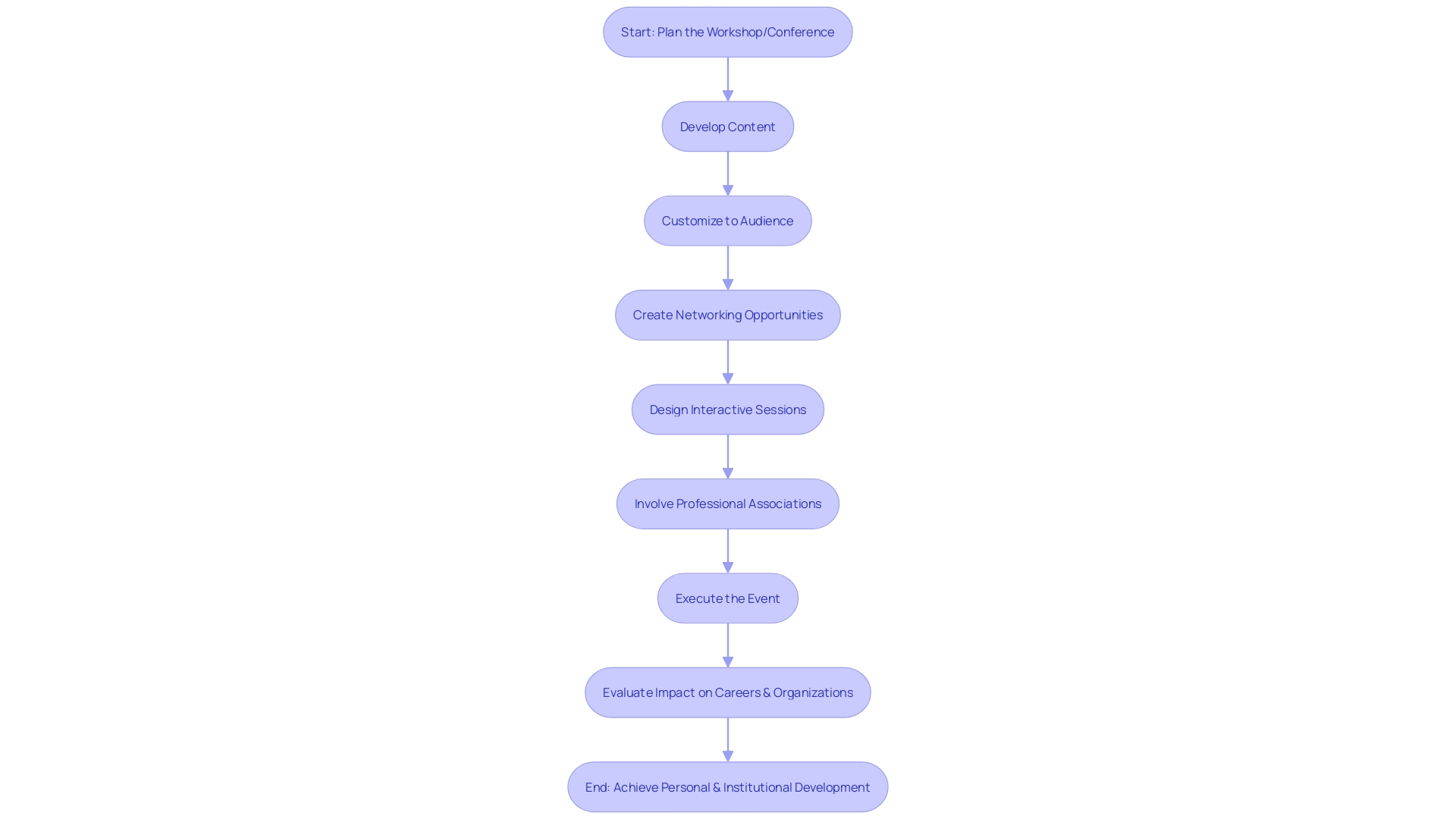
Webinars
Webinars have revolutionized the idea of conferences, bringing the interactive and communal experience of learning and discussion into the digital realm. These online seminars enable individuals to connect from any corner of the world, creating a virtual space for education, product showcases, and thought leadership. Participants can engage directly with the content and presenters through real-time features like live chat, polls, and Q&A sessions. This format has become particularly crucial for organizations like Nets, which operates across multiple European markets and requires consistent training for its staff to adhere to international financial regulations. Webinars offer a dynamic way to present complex technical data in an engaging manner, as emphasized by Karmela Peček, an Instructional Designer who strived to make such information accessible and compelling. With the rise in remote work, the frequency of webinars has surged, reflecting a 61% increase in meetings, including webinars, as remote work gained traction during the pandemic. This shift underscores the need for effective planning and goal setting to ensure webinars are not only informative but also align with the strategic objectives, whether it’s lead generation, product promotion, or staff training. As the digital education market flourishes, high-quality webinars stand out as a preferred method of learning, offering the flexibility and accessibility that today’s learners demand.

Key Elements of Seminar Classes
The effectiveness and success of seminar classes are deeply rooted in the structure and the elements that make up the framework. These classes are created to utilize the Socratic method of dialogue, an approach that promotes interactive discussion and critical thinking among individuals. Seminars are often intimate gatherings that encourage deep engagement with the subject matter, with participants typically numbering around 20 individuals per session. This setting allows for focused debate and collaborative learning, covering topics as dynamic as the fundamentals of finance and the complexities of research design.
Expertise in financial analysis, for instance, necessitates a solid grasp of accounting principles, as finance relies heavily on accounting data to gauge corporate health and valuation. Yet, financial analysis goes beyond the strictness of accounting, necessitating a wider viewpoint that conferences can cultivate. Research design is another crucial topic where workshops excel, guiding participants through selecting research methodologies, from agile research to human-centered design and beyond. Participants learn to craft high-quality questionnaires, select appropriate samples, and choose the best analytical techniques for their data. The goal is to produce actionable insights that resonate with decision-makers.
Moreover, the educational setting adjusts to the changing educational scene, where online education and content generated by artificial intelligence are quickly growing. Despite technological advances, the traditional workshop structure endures, providing adaptability and portability, with workshops taking place in various locations, from bars to living rooms. This flexibility guarantees that workshops persist as a valuable means of education and discussion, one that can capture focus and nurture intellectual inquisitiveness amidst the diversions of a high-tech society.
In general, workshops offer a strong platform for learning and exchange, capable of fostering deep comprehension and igniting innovative ideas in a collaborative environment.
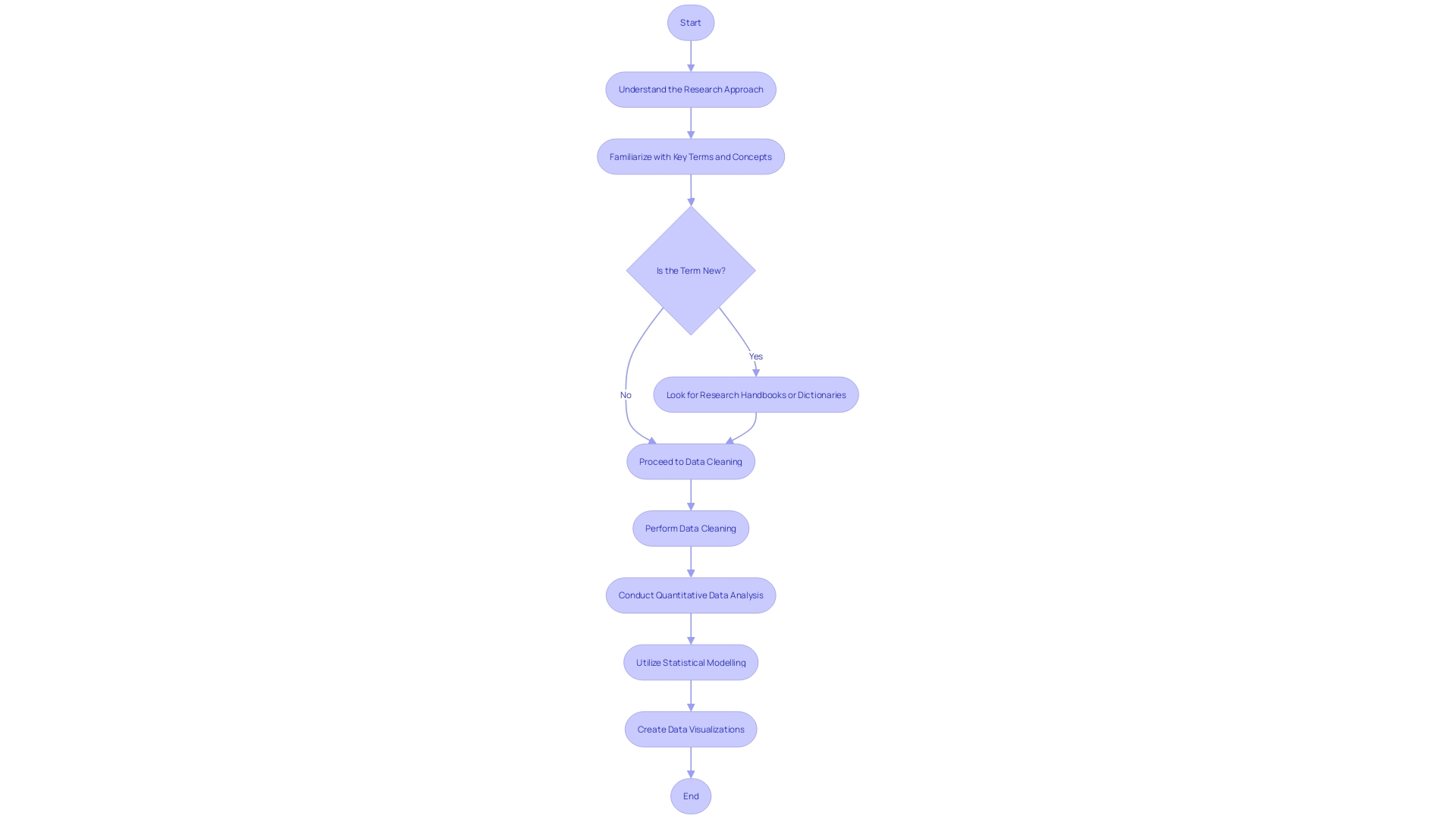
Preparation and Planning
Crafting an event requires careful planning to guarantee its success. It’s essential to start with a compelling topic that resonates with your intended audience, whether they are well-versed in the subject or newcomers to the field. For example, insights from a case study on big data analysis can illustrate the importance of choosing a topic that offers practical lessons and real-world applications, aiding participants in understanding complex concepts such as data cleaning, analysis, and visualization.
Finding the right speakers or facilitators is just as crucial as the topic itself. They should not only be knowledgeable but also capable of engaging the audience. To illustrate, the Vienna Research Seminar in Set Theory utilized speakers with deep insights into game theory to explore and rediscover multi-player utility in economics, providing attendees with a fresh perspective on an established concept.
An agenda is the foundation of a well-organized event, directing the sequence of activities and ensuring time is allocated efficiently. Get motivated by events that incorporate a range of research methods, promoting engagement and hands-on learning. For example, a gathering may incorporate a panel discussion offering a mix of experiences and viewpoints, as observed in the session with students from several universities sharing their insights on statistics education.
Engaging in discussions and active involvement are crucial elements that cannot be ignored. They offer a platform for attendees to delve deeper into the subject, exchange ideas, and potentially forge collaborative relationships. An event that promotes a lively sharing of information not only educates but also motivates those involved to investigate new opportunities in their individual areas of expertise.

Engaging Content
For any workshop to be impactful, it must captivate the audience with material that not only educates but also inspires active participation and critical analysis. Imagine transforming dense technical data into a narrative that draws participants to explore further on their own. This is precisely what Nets, a digital payment solutions provider, achieved by reimagining tables and schemes into more engaging formats. As Karmela Peček, an Instructional Designer at eWyse Agency, articulates, the challenge lies in presenting technical information in a digestible manner that encourages self-guided discovery.
By using a comparable method, an event can utilize multimedia elements and real-life examples to put content in context, making it more relatable and easier to understand. For example, a set theory session could present complex mathematical concepts through interactive models, facilitating a deeper comprehension among attendees. The Toronto Set Theory Seminar, for example, extends an invitation to a broad audience, promising to unravel the hierarchy of cli Polish groups with the aid of clear, accessible teaching methods.
Moreover, concise and targeted presentations are more effective than attempting to cover every aspect of a topic. This strategy was echoed in preparation tips for the MPSA conference, where the recommendation is to align the number of slides with the minutes available, ensuring a focused and memorable message. Such tips are vital in academia, where presenting complex research within a short timeframe is a common challenge.
Statistics education panels, including diverse student perspectives, underscore the importance of engaging teaching techniques. Students often cite the use of technology and visual aids as instrumental in enhancing their understanding of statistical concepts. The incorporation of technology in educational sessions can replicate the favorable results observed in statistics education, where tools such as R have greatly enhanced student involvement and learning outcomes.
In summary, the effectiveness of a workshop relies on presenting information in a captivating and approachable manner, encouraging conversations and nurturing a more profound comprehension of the topic. By incorporating these elements, presenters can ensure their seminars are not only informative but also inherently motivating.
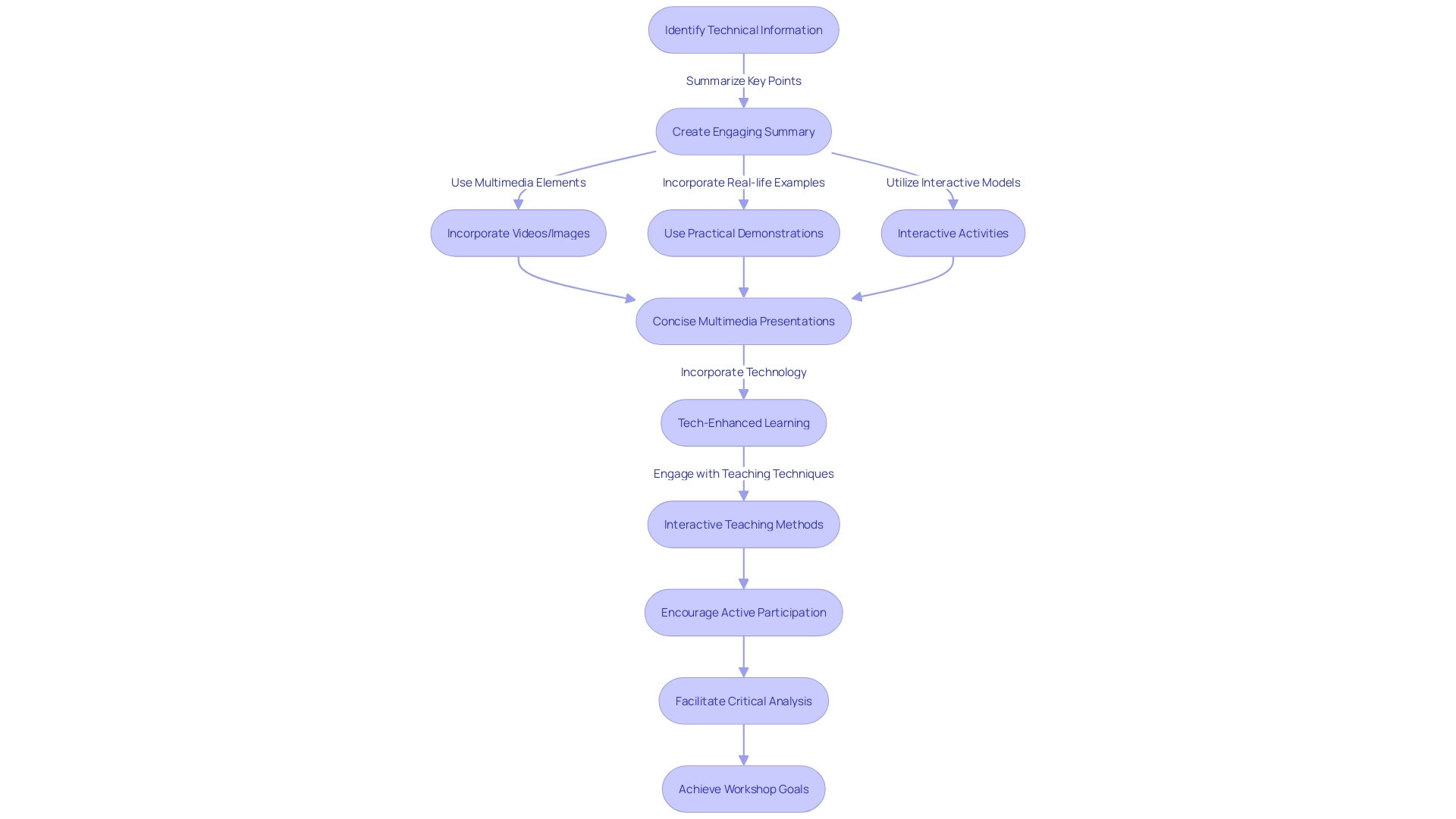
Interactive Discussions
Seminars are dynamic platforms where ideas are exchanged and knowledge is deepened through active discourse. The key to unlocking the full potential of these sessions lies in fostering an environment where every participant is engaged and contributing. By incentivizing contributions with positive reinforcement rather than penalizing mistakes, a supportive atmosphere is cultivated, encouraging everyone to share their insights and questions. This approach not only improves the experience of acquiring knowledge but also helps to clarify misunderstandings, as peers collaboratively navigate through complex topics.
In-depth discussions are particularly effective when they are structured around thought-provoking questions that require critical thinking and multifaceted responses. These questions can range from problem-solving to textual analysis, providing a scaffold that guides the conversation and enriches the exchange of perspectives. The integration of such structured discussions into assessments has shown promise in educational settings, encouraging students to engage deeply with material and promoting a compassionate approach to evaluation.
The advantages of interactive workshops are supported by research that shows that conventional lecture-focused education may not fully involve students and link them with real-life scenarios. On the other hand, group conversations, particularly with the aid of technology, provide a more dynamic and interactive educational experience. Advanced technology in education has demonstrated significant advantages in enhancing understanding through visualization and interaction, which can be particularly impactful in fields like statistics education.
Hence, embracing the potential of this educational event for interactive discussions not only transforms the learning environment but also aligns with contemporary educational research that emphasizes student engagement and the practical application of knowledge.
Effective Facilitation
The success of an event depends not only on the content, but also on the skillfulness of the facilitator. This individual must not only possess strong communication skills but also an acute understanding of group dynamics and the expertise to steer discussions towards productivity. Their role is multi-faceted, involving the stimulation of participant engagement, ensuring that diverse viewpoints are heard, and maintaining the focus and direction of the event.
Key elements of effective facilitation include the ability to translate complex ideas into accessible insights and the use of tools and practices that enhance understanding. For instance, incorporating well-designed graphics and visuals can dramatically improve the presentation’s impact. Similarly, addressing the specific interests and knowledge levels of various participants—from senior to middle management and technical staff—can make discussions more relevant and engaging.
Real-life examples demonstrate that the responsibilities of a facilitator go beyond the classroom. For example, researchers must learn to effectively communicate their findings to decision-makers, often requiring a compelling presentation of their work, including a well-crafted title, abstract, and cover letter. This approach can significantly increase the likelihood of their research receiving the attention it deserves.
Statistics from educational panels emphasize the importance of feedback from a diverse audience, which can help identify the unseen contributions of a paper or presentation, suggest improvements, and place the work in the broader context of the existing literature. Moreover, a study involving post-16 students in Further Education settings underscores the value of adopting research-informed approaches to teaching that cater to the specific needs of learners.
In the end, a facilitator’s proficiency is validated by their capacity to extract hidden perspectives and insights from discussions, thereby enhancing the learning experience and ensuring that the knowledge conveyed is both remembered and applicable.
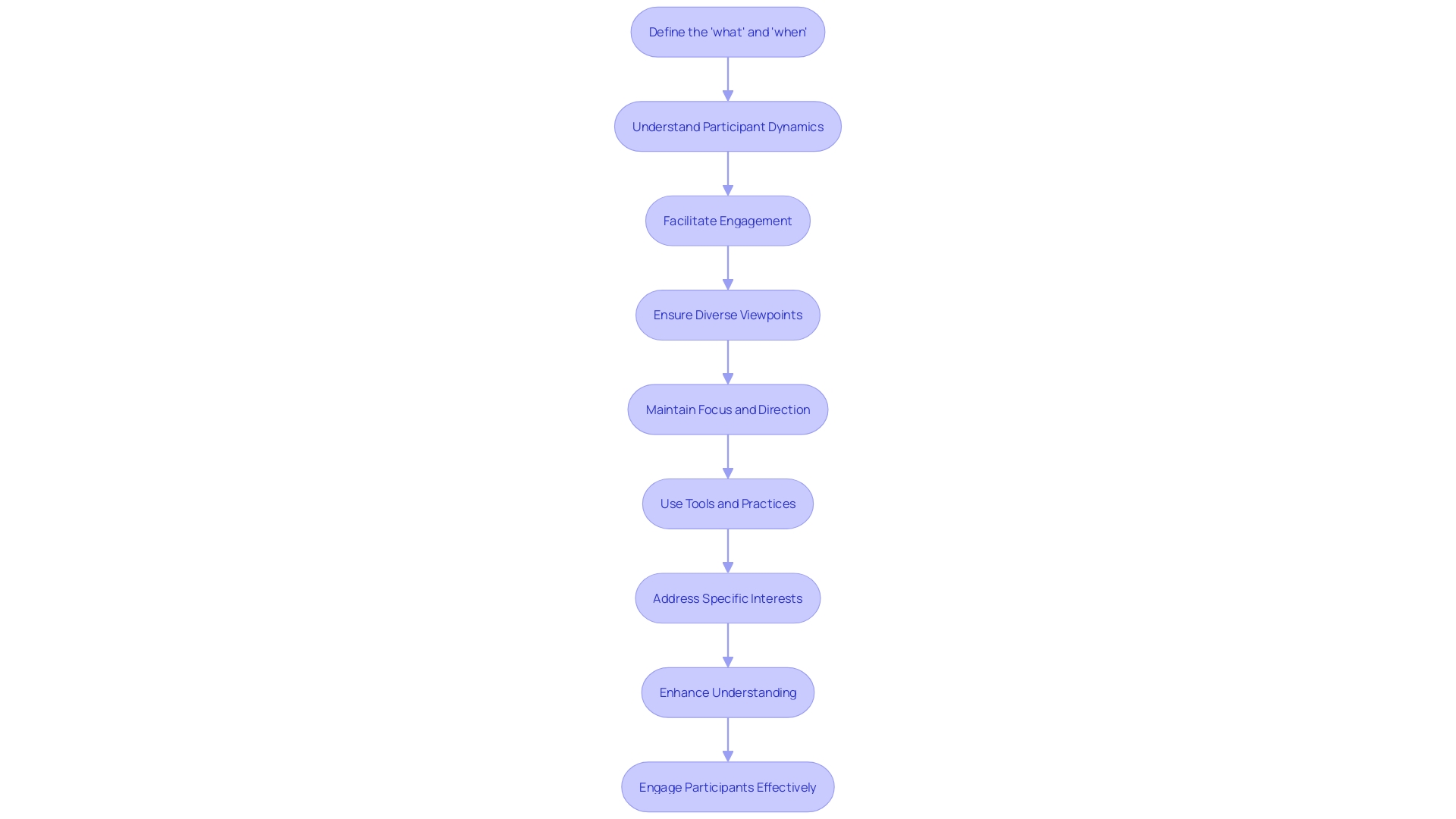
Benefits of Seminar Classes
Seminar classes stand out as a transformative educational experience, combining knowledge acquisition with practical skill enhancement. By incorporating agile research, human-centered design, and design thinking into their framework, these classes provide individuals with the tools and methodologies needed to effectively address real-world challenges. For instance, at Nets, a provider of digital payment solutions, workshops played a crucial role in creating user-friendly methods to showcase technical information, leading to enhanced client involvement.
In a workshop environment, participants acquire the ability to create high-quality questionnaires, a vital skill that results in actionable insights. This focus on quality data collection is coupled with lessons on selecting the most suitable analytical techniques, ensuring that the information gathered is not only relevant but also interpretable.
Furthermore, the cooperative character of workshops frequently reflects the assortment of the business world, as demonstrated by a Boston-based event that united people from different sectors, such as CEOs and experts in the music and sports fields. Here, participants shared common challenges like talent management and securing content agreements, fostering a rich environment for networking and idea exchange.
Furthermore, workshops highlight the significance of effective communication with decision-makers, a skill emphasized by the necessity to connect technical research discoveries and strategic business initiatives. Participants learn to present their data with enhanced graphics and visuals, making their reports not just informative but also engaging.
Finally, the practical application of workshop teachings can lead to significant improvements in operational processes, such as the onboarding of new employees. This practical approach ensures that participants leave with a comprehensive toolkit to drive decision-making and innovation within their organizations.

Knowledge Expansion
Seminars are an invaluable tool for delving deep into specialized areas of knowledge, offering a structured way to tackle complex subjects. For example, the Ten-Step Process for Teaching and Learning with Research Cases demonstrates how workshops can efficiently break down the complex procedure of information analysis from collection to visualization. This systematic approach breaks down the journey into comprehensible segments, from acquiring knowledge about research methodologies to mastering data visualization techniques. It’s an educational scaffolding that enables the gradual development of skills, much like how NOAA’s Central Library demonstrates the application of knowledge through their accessible online presentations. Such resources highlight the practical application of scientific understanding and are instrumental in keeping the public informed on environmental changes.
The process of acquiring knowledge in workshop environments also involves developing strong research plans and utilizing high-quality surveys, which are essential for collecting valuable findings. The choice of the best analytical technique is determined by the type of data at hand, and the ability to communicate insights effectively to decision-makers is emphasized. Furthermore, the differentiation between online education approaches, like eLearning and virtual online education, is frequently examined within the flexible structure of workshops, demonstrating how technology has revolutionized education to be more engaging and flexible to personal requirements.
According to educators who have handled large classes, the personal connection may be reduced, but the emphasis changes to assessing student comprehension through assignments that mirror weekly outcomes. These insights are not only relevant for students but also serve as a beacon for the broader public, pointing towards the importance of open curriculum content and the sharing of institutional expertise. With over four million learners engaged in online courses, the reach of seminars and their impact on professional education has never been clearer. They stand as evidence of the power of structured environments to promote growth, both in knowledge and in the application of that knowledge to real-world scenarios.
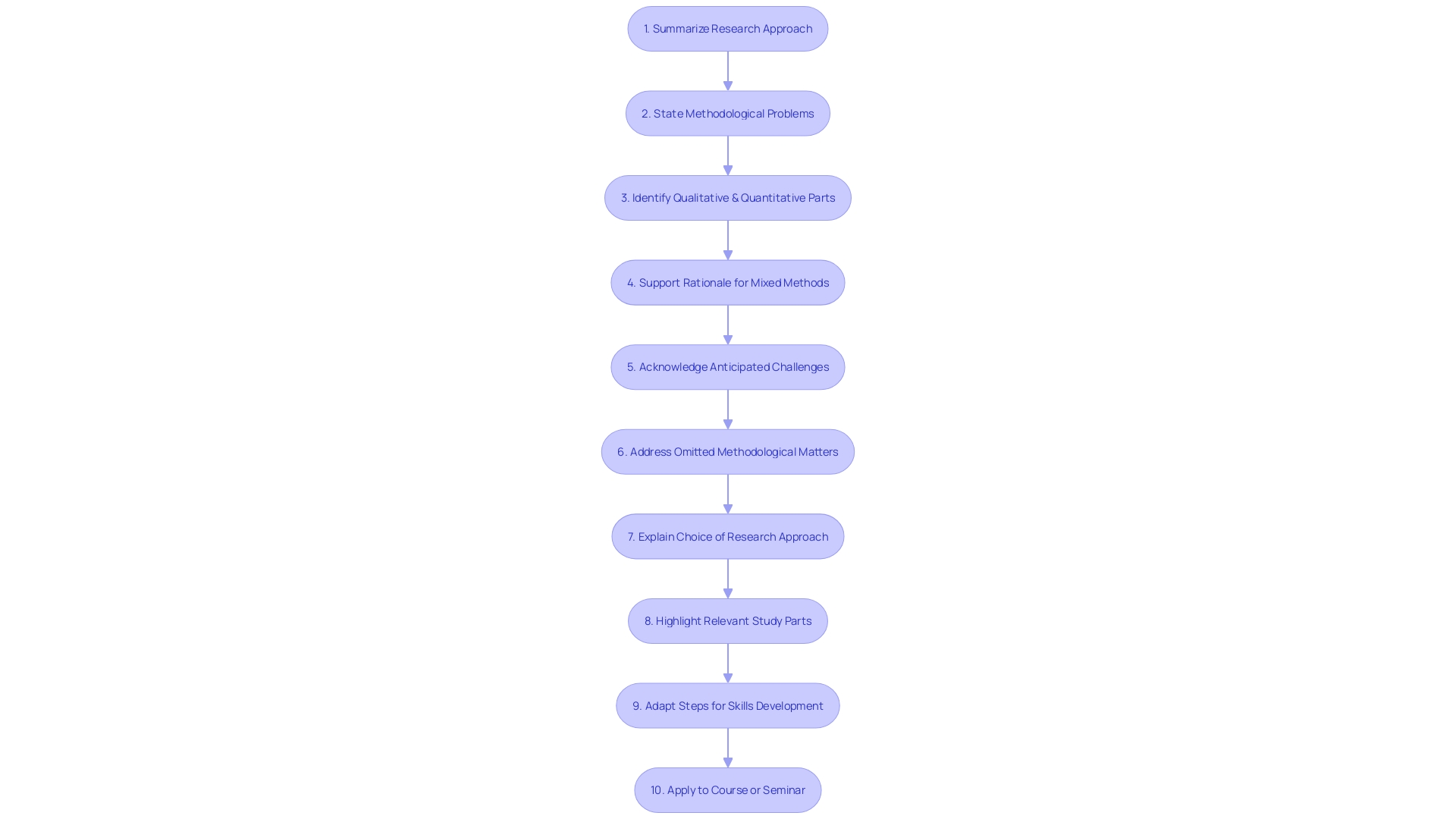
Skill Development
Seminars offer a dynamic setting where individuals engage with complex topics, such as the multifaceted health marketplace, encompassing product and service choices, consumer rights, and the avoidance of misinformation and fraud. By diving into such subjects, participants sharpen their critical thinking—a skill pivotal for professionals in numerous fields, as highlighted by a recent study questioning the prevalence of critical thinking in professional schools. By engaging in lively conversations and delivering informative talks, participants in the event enhance their capacity to express themselves proficiently and showcase information with assurance, equipping them for making well-informed choices and logical doubt necessary for continuous education. In addition, the interactive aspect of workshops promotes networking, enabling learners to engage with classmates and professionals, thereby expanding their professional perspectives and prospects. As educational events adjust to digital platforms, they utilize online learning technologies, making education more flexible and interactive, which is often favored over traditional settings. This flexibility is crucial for those balancing multiple responsibilities, as it allows for the integration of professional development into busy schedules. The significance of workshops is additionally emphasized by the experiences of respected scholars like Ayse, who applies her statistical knowledge to improve both health outcomes and the standard of education in her domain, gaining worldwide acknowledgment for her contributions.
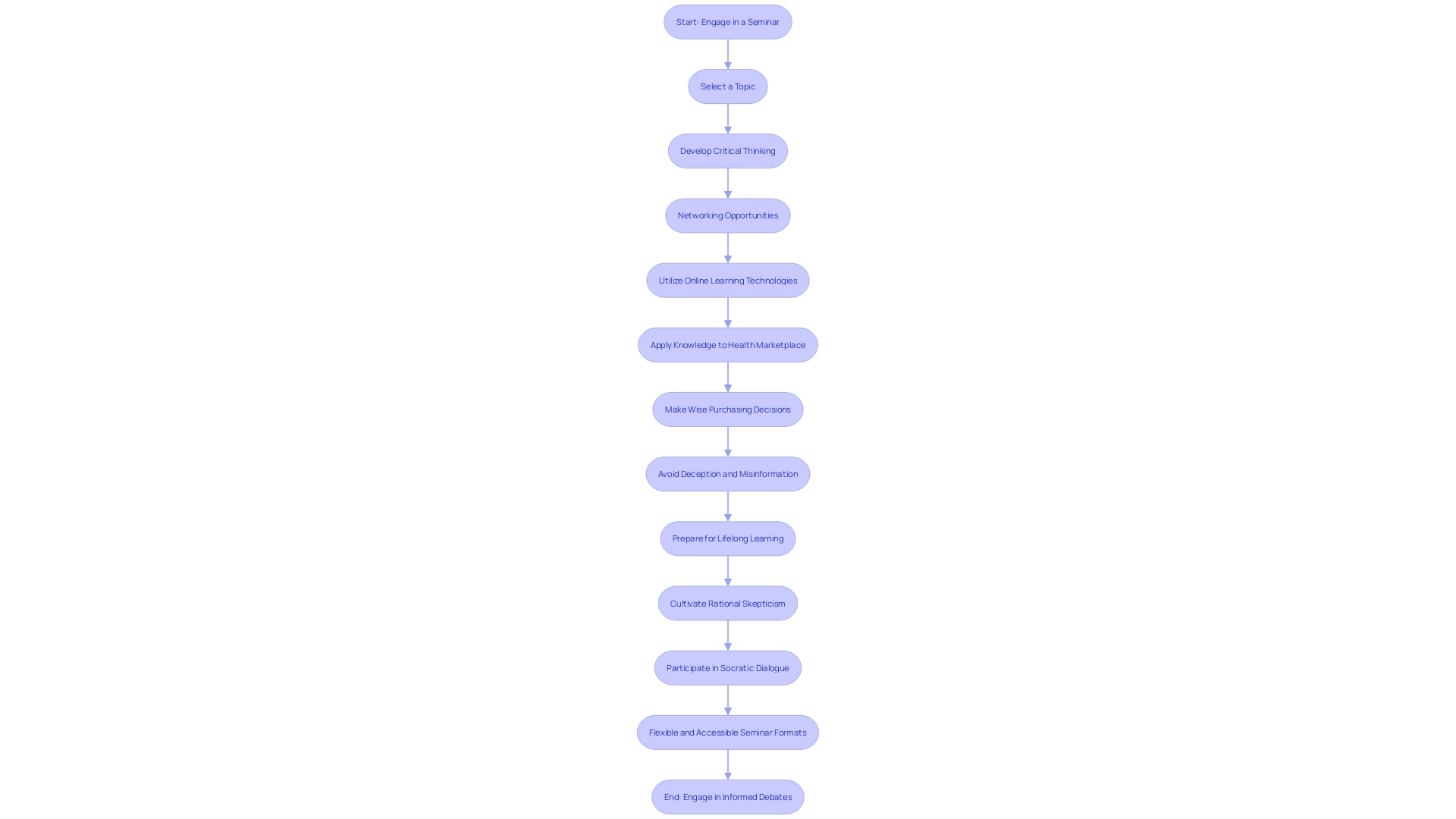
Networking Opportunities
Taking part in workshops is not only about acquiring information; it’s a valuable chance to create a diverse network of professional contacts. The interactions in these settings are invaluable, as they allow you to engage with peers who share your interests, experts who are at the forefront of your industry, and even potential mentors who can provide guidance and support. For instance, consider the journey of Gloria, an Electronic Engineer who faced challenges due to discrimination in her field. Despite these obstacles, she built a robust network that helped her secure a position as a laboratory instructor and continue to break barriers. Similarly, students in the Department of Electronic & Electrical Engineering benefit from a structured network of personal tutors, ensuring they have the support they need throughout their studies.
Seminars provide a platform to discuss the latest trends and technologies, as evidenced by the case of Allegheny College, where a significant network overhaul was necessary. By collaborating with trusted partners, they ensured students and faculty had reliable connectivity, critical for modern education. Networking is likened to self-marketing; it has evolved from the early days of connecting computers to a vital professional skill that propels individuals towards advancement.
With the job market landscape constantly changing, as evidenced by LinkedIn’s projections of a 150% rise in remote job listings by 2025, and a 74% yearly increase in AI and machine intelligence positions, attending seminars enables you to stay updated on these developments. It’s not just about the present, but about positioning yourself for future opportunities. In these dynamic environments, sharing passions, values, and objectives can lead to meaningful connections that support your ‘unicorn career’ – a career that is distinctly yours and designed for your growth and satisfaction.
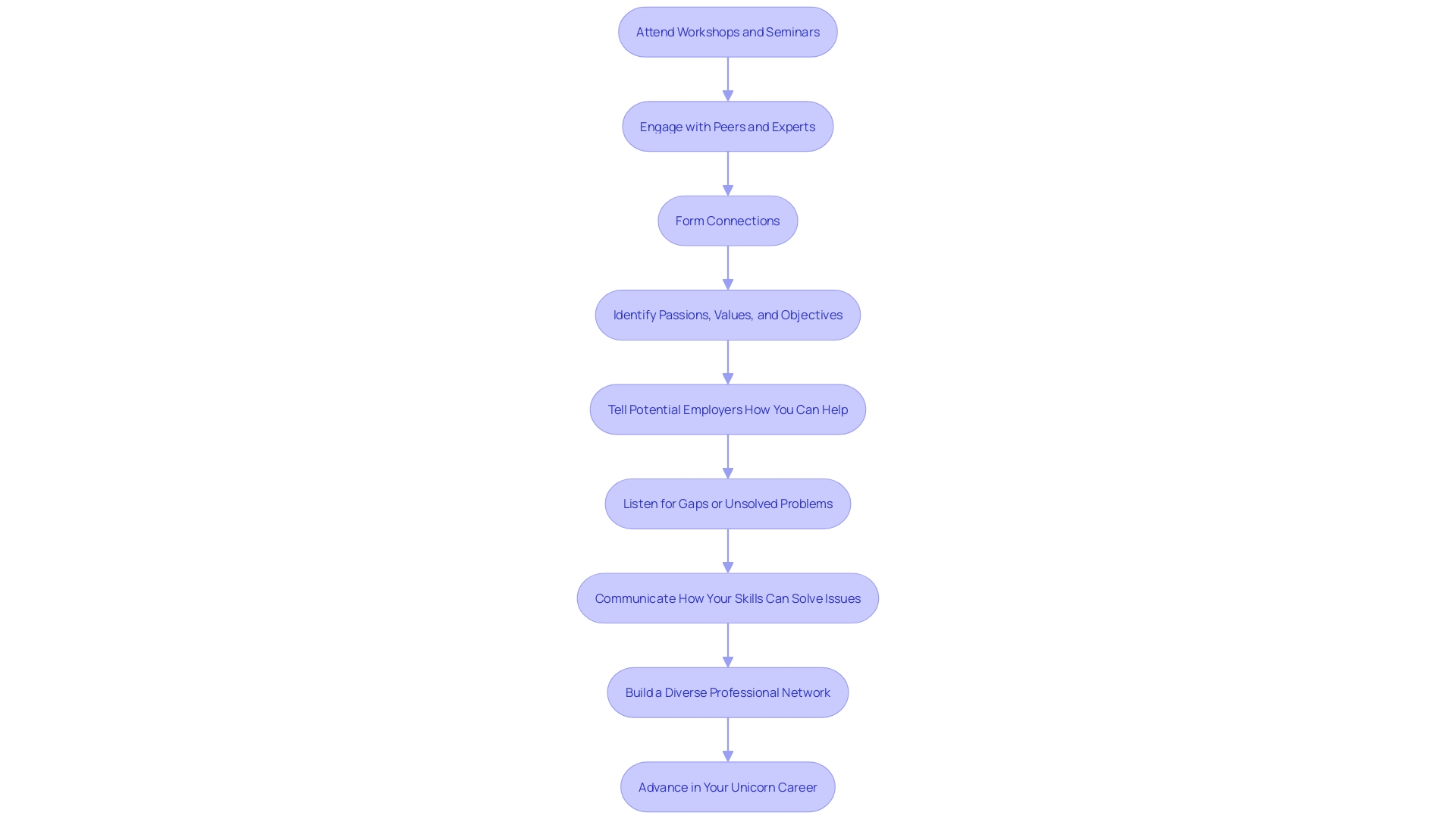
Continuous Learning
Seminars serve as dynamic platforms for professional enrichment, where individuals come together to delve into the latest industry trends and knowledge. Take, for example, the case of Nets, a digital payment solutions provider with over half a century of expertise. They have successfully managed the integration of intricate technical data into engaging formats that foster independent exploration and growth. Through such innovative educational approaches, they have improved their onboarding processes, with noticeable results in employee engagement and competence.
Furthermore, the changing terrain of educational technologies has enabled the transformation of education into a captivating and interactive encounter. This is apparent in the increasing favor for online education instead of conventional methods due to its inherent flexibility. Online education, particularly through the use of workshops, enables professionals to plan their education around other commitments, making it an indispensable resource for ongoing development.
The difference between virtual and online e-education has become more and more important, with eLearning offering asynchronous educational experiences, unlike online education that necessitates simultaneous participation. This flexibility is crucial for companies like EHL Group, which caters to the hospitality and service sector with a range of educational programs, demonstrating the diverse structures of seminars.
Furthermore, adopting a lifelong culture of education is not only about personal development; it’s about economic resilience. As stated in the ‘2023 Lean into Learning Report,’ organizations that cultivate cultures of education are better positioned to adapt to digital transformations and build resilient teams. The report underscores the importance of skilling for individual employability and the competitive strength of economies.
To summarize the significant impact of education, take into account the words of an instructional designer, Karmela Peček, who emphasizes the importance of converting information into engaging forms that encourage self-motivated exploration. It is this guiding principle of interactive and ongoing education that conferences encompass, promoting a culture where the acquisition of knowledge and professional growth are intertwined.
Best Practices for Seminar Classes
When it comes to delivering a high-quality class, incorporating a blend of tested strategies and innovative approaches can significantly enhance the learning experience. Drawing from a case study on data analysis, we learn the importance of step-by-step instruction in complex subjects, such as cleaning, analyzing, and visualizing large-scale web-based data. This methodical approach not only clarifies the unique challenges but also offers tailored solutions through practical examples. Such a structured process can be adjusted to suit various workshop topics or even for personal skill improvement.
Additionally, integrating feedback from a select test group before a full course launch is invaluable. This feedback can pinpoint whether the content clarity, alignment of learning activities with course objectives, and the overall course workflow meet the educational goals. The Socratic nature of this educational event, a lasting pedagogical technique, fosters intimate and engaging discussions, proving its resilience even in the face of rapid technological advancements in education.
Furthermore, workshops provide a chance to explore both qualitative and quantitative research methods. Through an analysis of mental health and resilience in specialized sectors, learners can explore mixed methods research, which includes both statistical analysis and qualitative inquiry. This method not only enhances the workshop experience but also readies individuals for a broad spectrum of research applications.
Clear Objectives and Outcomes
Determining the goals and anticipated results of a workshop is not only about clarity; it involves aligning with the requirements and anticipations of the attendees. For example, attendees could anticipate acquiring knowledge on how to address the communication gap between researchers and decision makers, or they might be looking to enhance their report presentations to cater to different management levels. By detailing outcomes such as mastering the use of data to uncover insights or improving visual elements of a presentation, participants can gauge the direct benefits they will receive. In addition, comprehending how to fix typical flaws in reports and presentations and acquiring the skills to present findings effectively guarantees that the knowledge acquired is both practical and actionable. This approach to workshop design ensures that time invested translates into tangible skill enhancements and knowledge that can be applied in real-world scenarios.
Engaging Participants
To promote a stimulating educational atmosphere in workshops, it is essential to engage participants actively. By integrating a variety of instructional methods—such as interactive discussions, collaborative group tasks, and multimedia tools—participants become more than passive listeners; they become active contributors to the collective knowledge. LaPlume’s study on data analysis, for instance, offers a compelling template for engagement by outlining a ten-step process that encourages hands-on and practical application. By providing real-life examples and incorporating current events, seminars can have a stronger impact on participants, as demonstrated by ASAE’s webinar on pressing legislative changes affecting tax-exempt organizations.
The emphasis on emotional engagement cannot be overstated. When learners experience a personal connection to the subject matter, their motivation soars, and they become more engaged in the educational process. This is supported by evidence, such as that found in literature reviews, which points out the shortcomings of traditional statistical education and the need for more dynamic teaching methods. For example, interactive activities aligned with educational objectives can motivate active engagement, as observed in the discrete structures course that presents students with intricate ideas such as mathematical induction.
Furthermore, the incorporation of technology, such as Loom videos, caters to the contemporary learner’s mobile lifestyle and inclination for multitasking, enhancing the educational encounter’s accessibility and adaptability. By adjusting the content of the workshop to be mobile-responsive, participants can interact with the material in a way that fits their dynamic schedules.
By embracing the spirit of the Socratic method, the interactive discussion remains a vital tool in the pursuit of higher education, even in the age of AI and virtual learning. The customary workshop arrangement offers a versatile and reachable stage for discussion and exchange, demonstrating that significant commitment can surpass the limits of a customary homeroom setting and adjust to different conditions, from a bar to a recreation center or a parlor.
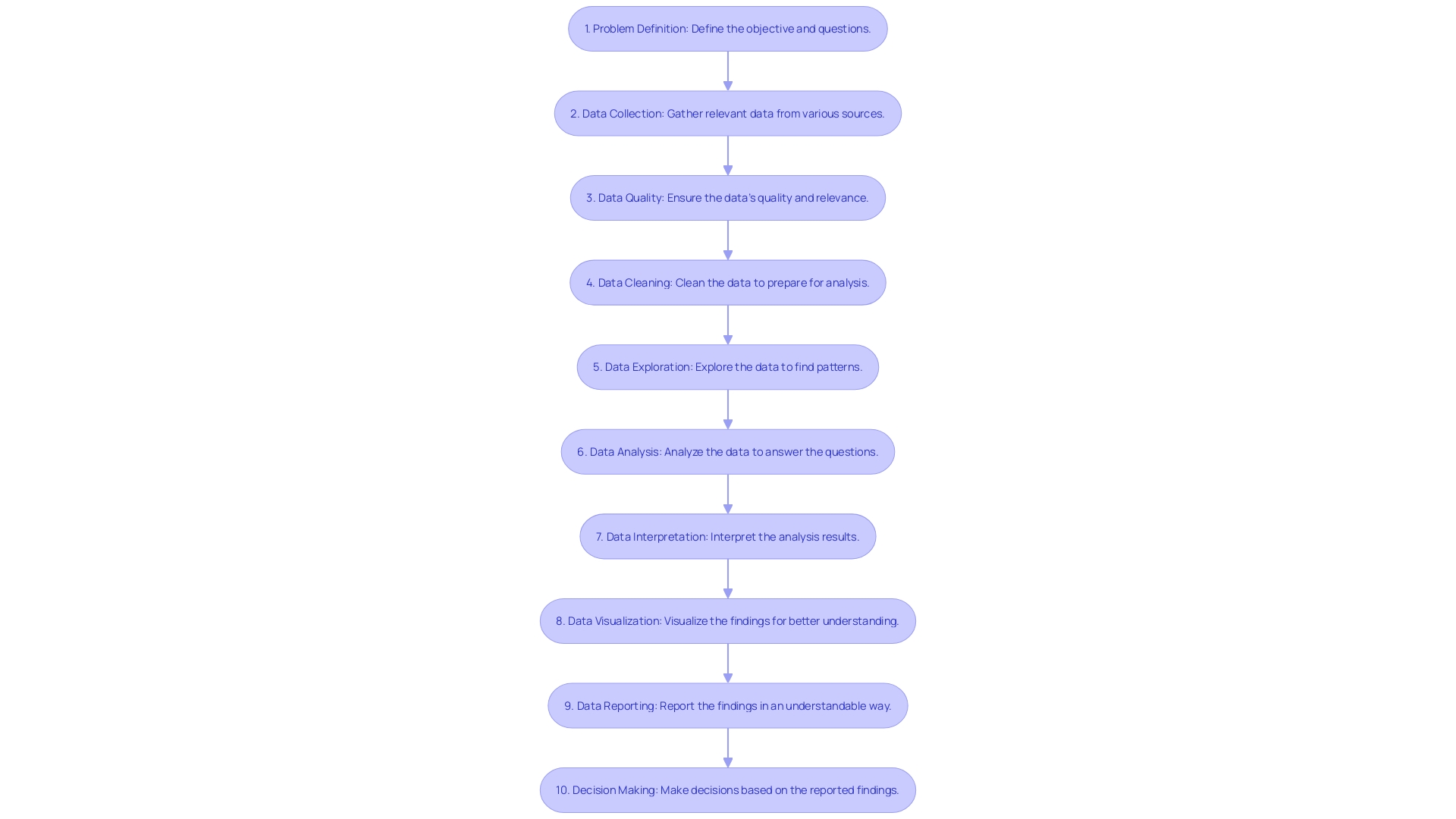
Evaluation and Feedback
Collecting valuable feedback from participants is crucial for improving the composition and substance of educational sessions to more effectively achieve learning objectives. Insights from the International Society for Evaluation Education (ISEE) highlight the importance of contextually rich evaluation experiences. By leveraging the diverse range of 148 identified cases, educators can draw upon simulations and exemplars that mirror real-world scenarios, thus providing a deeper understanding of evaluative practices.
Incorporating feedback mechanisms into seminars enables educators to pinpoint what is effective, such as the depth of engagement or the clarity of content, and to identify areas for enhancement. For example, recent research, including a notable randomized controlled experiment, has emphasized the importance of useful feedback in professional development. The trial’s outcomes, published in peer-reviewed journals, serve as a testament to the transformative power of well-executed feedback systems.
Furthermore, statistics education leader Ayse, recognized with the Juárez Lincoln Martí Award, exemplifies the positive impact of feedback on learning and teaching. By utilizing artificial intelligence applications to enhance lesson content, educators can further customize their approach to delivering educational sessions. It is also important to promptly close the feedback loop, as advised by best practices in educational literature, ensuring that individuals comprehend which aspects of their input can be incorporated into future sessions and the reasoning behind those choices. This transparent process not only reinforces the value of perspectives but also fosters an environment of continuous improvement and excellence in education.
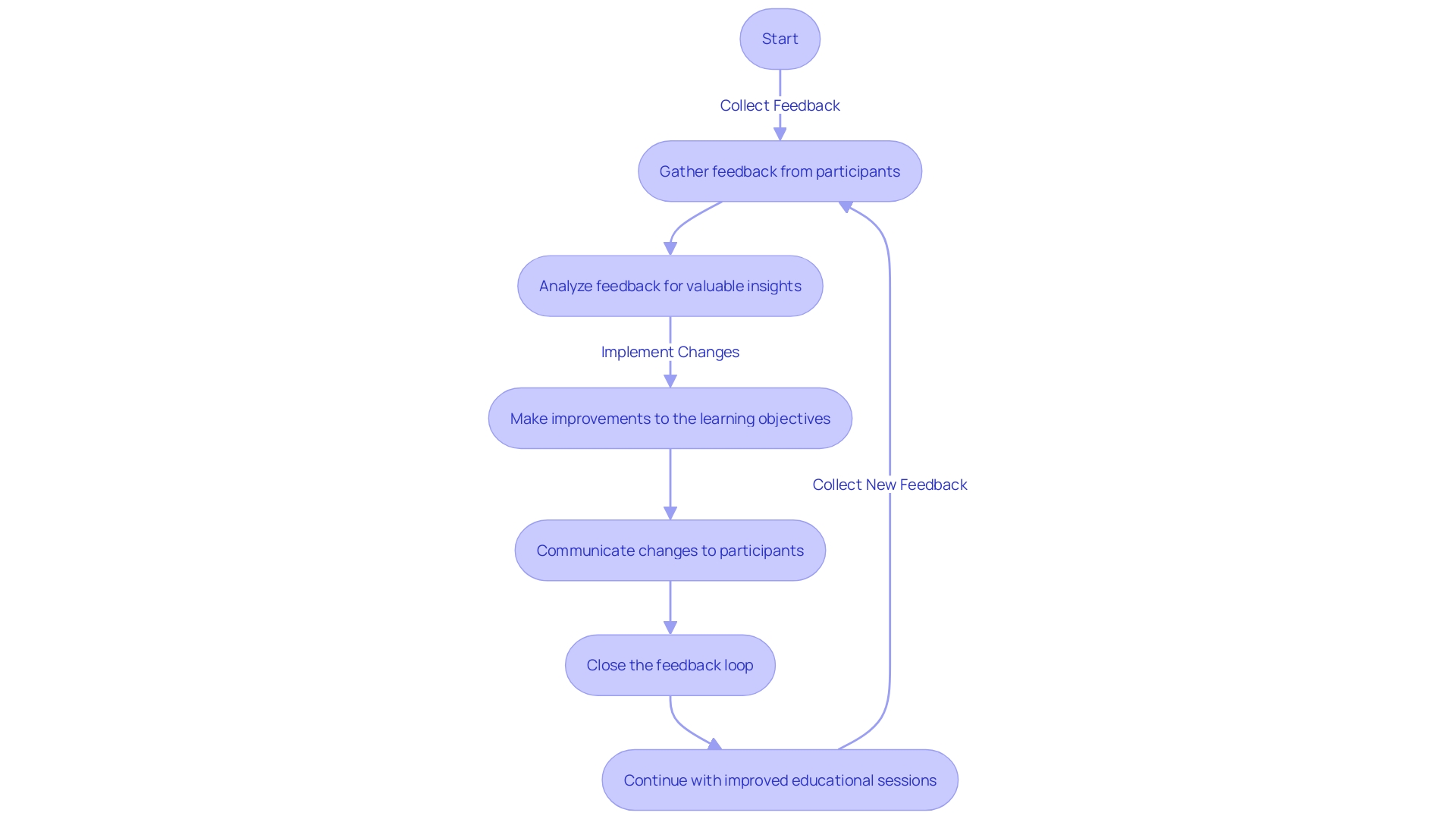
Continuous Improvement
To uphold the impact and relevance of an event, organizers must take a dynamic and responsive approach to planning and execution. Engaging in iterative service-learning, similar to the computing-based case study for small rural organizations discussed on arXivLabs, reinforces the philosophy that feedback loops and collaboration elevate the quality of educational experiences. Embracing the incremental workflow highlighted in academic discourse, seminar leaders can refine their content and structure through continuous dialogue with participants, mirroring the agile methodologies successful in software engineering. This process of regular evaluation and adaptation aligns with the principles of deliberate practice, as defined by K. Anders Ericsson and colleagues, which underscores the necessity of structured tasks and feedback in achieving mastery. Moreover, this approach is supported by the substantial advancements made in the field of research design and implementation, offering a diverse array of methodologies such as agile research, human-centered design, and design thinking. Seminar organizers are thus equipped to design and execute educational offerings that are not only informed by the latest pedagogical strategies but are also fine-tuned to the evolving needs and contributions of their audience. Such dedication to excellence reflects the ongoing commitment to gender equality and empowerment of all individuals, as championed during significant events like the International Conference on Population and Development and echoed in the initiatives of UN agencies.
Conclusion
In conclusion, seminars are dynamic educational experiences that foster deep engagement, collaboration, and critical thinking. They go beyond traditional lectures by encouraging active participation and the exploration of diverse viewpoints. Seminars enhance knowledge, nurture a culture of innovation, and prepare individuals to tackle the complexities of the modern world.
Participants in seminars acquire specialized knowledge and skills in areas such as data analysis, research design, leadership, and finance. They gain practical insights and learn to apply analytical techniques to real-world scenarios. Seminars also provide a platform for discussing recent advancements in specific fields and exploring the evolving landscape of online education.
Moreover, seminars foster critical thinking and analysis. Participants learn to discern between factual information and misleading claims, preparing them to make thoughtful and educated decisions. The seminar environment challenges participants to question assumptions and consider various perspectives.
Seminars also facilitate collaboration and networking. Participants benefit from the collective wisdom and diverse perspectives of their peers and industry experts. They have the opportunity to form professional relationships that can lead to collaborative projects and career advancements.
Seminars offer networking opportunities, allowing individuals to connect with like-minded professionals and stay abreast of industry trends.
Furthermore, seminars contribute to personal and professional development by honing skills such as public speaking and presentation. They provide a platform for individuals to improve their communication abilities and receive valuable feedback. Seminars also foster socio-emotional development, fostering confidence and a sense of community among participants.
In summary, seminars offer a unique synergy of learning and networking, enabling participants to gain expertise, build professional connections, and enhance their personal and professional development. They are a valuable investment for individuals and organizations, equipping participants with the skills and knowledge needed to thrive in the modern world.
{“@context”: “https://schema.org”, “@type”: “FAQPage”, “mainEntity”: [{“@type”: “Question”, “name”: “What are seminars?”, “acceptedAnswer”: {“@type”: “Answer”, “text”: “Seminars are dynamic educational experiences designed for participants to engage deeply with a specific subject. They facilitate active exchange of insights, collective growth, and the exploration of various viewpoints in both academic and professional contexts.”}}, {“@type”: “Question”, “name”: “How do seminars differ from traditional lectures?”, “acceptedAnswer”: {“@type”: “Answer”, “text”: “Unlike traditional lectures, which often feature one-way communication, seminars promote interactive discussions, allowing participants to ask questions, share insights, and collaboratively explore topics. This approach fosters a richer learning environment.”}}, {“@type”: “Question”, “name”: “What is the purpose of workshops within seminars?”, “acceptedAnswer”: {“@type”: “Answer”, “text”: “Workshops focus on practical skills and collaborative learning. For example, they guide attendees through the stages of data analysis, from cleaning to visualization, using real-world case studies to enhance understanding and application of the concepts.”}}, {“@type”: “Question”, “name”: “Why are structured questions important in seminars?”, “acceptedAnswer”: {“@type”: “Answer”, “text”: “Structured questions guide discussions and encourage participants to think critically about the topic. They help explore various dimensions of a subject, enhancing the depth and quality of dialogue.”}}, {“@type”: “Question”, “name”: “How does technology enhance seminars?”, “acceptedAnswer”: {“@type”: “Answer”, “text”: “Technology facilitates visualization and interaction, making learning more engaging. It caters to the needs of modern, tech-savvy learners, democratizing education and making it more accessible.”}}, {“@type”: “Question”, “name”: “What skills can participants develop through workshops?”, “acceptedAnswer”: {“@type”: “Answer”, “text”: “Participants can improve a range of skills, including data analysis, critical thinking, public speaking, and effective communication. Workshops often emphasize real-world application, equipping attendees with practical tools for their professional or academic pursuits.”}}, {“@type”: “Question”, “name”: “How do seminars contribute to professional networking?”, “acceptedAnswer”: {“@type”: “Answer”, “text”: “Seminars create opportunities for attendees to connect with peers, industry experts, and potential mentors. These interactions can lead to collaborative projects and career advancements.”}}, {“@type”: “Question”, “name”: “What role does facilitation play in seminars?”, “acceptedAnswer”: {“@type”: “Answer”, “text”: “Effective facilitation is crucial for engaging participants, guiding discussions, and ensuring diverse viewpoints are heard. A skilled facilitator can enhance the learning experience by fostering a supportive and interactive environment.”}}, {“@type”: “Question”, “name”: “How can feedback improve seminar effectiveness?”, “acceptedAnswer”: {“@type”: “Answer”, “text”: “Collecting and incorporating feedback from participants helps refine the content and structure of seminars. This process ensures that the educational offerings meet the needs and expectations of attendees.”}}, {“@type”: “Question”, “name”: “In what ways do seminars prepare participants for real-world challenges?”, “acceptedAnswer”: {“@type”: “Answer”, “text”: “Seminars emphasize practical learning through case studies and hands-on activities, enabling participants to apply their knowledge to real-world situations. This preparation is critical for addressing the complexities of contemporary society.”}}]}
{“@context”: “https://schema.org”, “@type”: “BlogPosting”, “headline”: “Understanding the Meaning of Seminar Classes: Definitions and Purposes”, “description”: “Delve into the seminar class meaning: a hub for shared learning and skills growth.”, “datePublished”: “2024-10-10T00:01:12.314000”, “image”: [“https://telyai.blob.core.windows.net/telyai/the-mind-map-chart-visualizes-the-relationships-between-concepts-and-ideas-discussed-in-the-article-section.jpg”, “https://telyai.blob.core.windows.net/telyai/flowchart-illustrating-the-process-of-discerning-reliable-health-claims-from-misinformation.jpg”, “https://telyai.blob.core.windows.net/telyai/flowchart-illustrating-the-process-of-collaborative-education-and-professional-networking-in-seminars.jpg”, “https://telyai.blob.core.windows.net/telyai/flowchart-illustrating-the-different-types-of-workshops-and-their-purposes.jpg”, “https://telyai.blob.core.windows.net/telyai/flowchart-showcasing-the-process-of-organizing-a-professional-workshop-or-conference.jpg”, “https://telyai.blob.core.windows.net/telyai/flowchart-illustrating-the-process-of-planning-and-conducting-a-webinar.jpg”, “https://telyai.blob.core.windows.net/telyai/structure-and-elements-of-seminar-classes.jpg”, “https://telyai.blob.core.windows.net/telyai/flowchart-crafting-an-event-process.jpg”, “https://telyai.blob.core.windows.net/telyai/flowchart-illustrating-the-process-of-transforming-technical-data-into-engaging-workshop-material.jpg”, “https://telyai.blob.core.windows.net/telyai/flowchart-illustrating-the-facilitation-process.jpg”, “https://telyai.blob.core.windows.net/telyai/flowchart-showcasing-the-transformative-process-of-seminar-classes.jpg”, “https://telyai.blob.core.windows.net/telyai/ten-step-process-for-teaching-and-learning-with-research-cases.jpg”, “https://telyai.blob.core.windows.net/telyai/process-of-engaging-in-seminars.jpg”, “https://telyai.blob.core.windows.net/telyai/flowchart-building-a-professional-network-through-workshops-and-seminars.jpg”, “https://telyai.blob.core.windows.net/telyai/flowchart-illustrating-the-ten-step-process-for-data-analysis-in-educational-workshops.jpg”, “https://telyai.blob.core.windows.net/telyai/flowchart-process-of-collecting-and-utilizing-feedback-in-educational-sessions.jpg”], “articleBody”: “## Introduction\nSeminars are dynamic educational experiences that foster deep engagement and active participation in a particular subject. They go beyond traditional lectures by encouraging collaboration, critical thinking, and the exploration of diverse viewpoints. In both academic and professional contexts, seminars provide a platform for interactive learning, where participants contribute to the conversation and consider real-world case studies.\n\nThese seminars not only enhance knowledge but also nurture a culture of innovation and prepare individuals to tackle the complexities of the modern world. With their focus on practical application and the exchange of ideas, seminars are vital for personal and professional development, fostering networking opportunities and equipping participants with the skills and expertise needed to make informed decisions. Whether in-person or online, seminars offer a unique synergy of learning and networking, making them a valuable investment for individuals and their organizations.\n\n## Definition of Seminar Classes\nSeminars are dynamic educational experiences that bring together individuals to deeply engage with a particular subject. They are more than just an opportunity to acquire knowledge; they enable participants to actively exchange insights, question each other’s thinking, and broaden their understanding through a collective process of growth. In these interactive environments, which can occur in both academic and professional contexts, attendees are encouraged to contribute to the conversation, pose questions, and consider various viewpoints.\n\nDuring a workshop, each stage, starting from investigation to analysis, presents a chance for cooperative learning. Consider, for instance, a workshop centered on extensive information examination. It would guide participants through the intricacies of handling large-scale online data, from initial cleaning to intricate visualization techniques, using real-world case studies like LaPlume’s examination of data analysis practices. This hands-on approach helps crystallize learning, making the complex accessible.\n\nThe transformative power of [educational workshops](https://news.uga.edu/uga-holds-second-active-learning-summit) is echoed by Eric Mazur, an academic dean at Harvard University, who emphasizes that education transcends mere information transmission. It\u2019s about creating an environment where students collaborate and build upon the knowledge base. It’s this philosophy that emphasizes the importance of workshops.\n\nSeminars often revolve around purposeful questions that spur thought and discussion. For instance, asking participants to consider the multifaceted impact of an earthquake on a low-income city can spark a rich conversation exploring economic, social, and environmental factors. Such structured questions provide a scaffold that enhances the depth and quality of dialogue.\n\nDespite the recognized value of seminars, traditional lecture-based education, particularly in statistics, has been critiqued for its one-way communication and lack of real-world context. Research has shown that engaging teaching methods, which include active student participation and the opportunity to learn from mistakes, lead to deeper understanding. Technology enhances this process, enabling visualization and interaction that align with the styles of today’s tech-savvy students. The incorporation of technology not only enables education but also democratizes it, allowing greater access on a global scale.\n\nIn the end, seminars embody a vital pedagogical method that promotes intellectual development, cultivates a culture of innovation, and prepares individuals to address the intricacies of the contemporary society. They are a testament to the evolving landscape of education, where the exchange of ideas and experiential learning are fundamental to developing the skills, knowledge, and values needed for active and engaged citizenship.\n## Purposes of Seminar Classes\nSeminar classes are multifaceted educational experiences that cater to an array of purposes, often determined by the specific needs of the subject matter and the objectives of the attendees. One main objective of workshops is to explore the analytical phases of research, where attendees interact with quantitative analysis through statistical modeling. They master the procedure from information cleansing to visualization, equipping them with the abilities to understand and handle challenges in information collected online.\n\nIn a seminar setting, attendees are introduced to diverse research design alternatives, from human-centered design to agile research, and learn how to apply the most fitting study design. They are trained to select appropriate samples, control information quality, and develop high-quality questionnaires that yield actionable results. Seminars also focus on the crucial task of selecting the right analytical technique that aligns with the data at hand, and they emphasize the importance of creating reports that effectively communicate insights to decision-makers.\n\nFurthermore, academic talks can serve as a medium for discussing recent advancements in specific fields, such as the intricacies of cardinality estimation in database management, or the hierarchy and rank of cli Polish groups in mathematical theory, as presented in various scholarly presentations. Participants are exposed to up-to-date information and open problems, fostering a dynamic educational environment.\n\nAnother aspect addresses the changing landscape of online education. They explore the day-to-day operations of virtual learning, the distinctions between e-learning and online education, and the technologies that make learning engaging and interactive. This knowledge is particularly beneficial for those seeking flexibility in managing academic and other responsibilities.\n\nUsing case studies and real-world examples, the sessions offer a substantial comprehension of different subjects. For instance, they offer insights into the language of finance, breaking down complex concepts and highlighting the importance of understanding accounting terms for corporate financial analysis.\n\nIn the end, workshops function as a knowledge center where attendees can gain insights into the wide range of regression models, their uses, and the proper interpretation of data. With an emphasis on [practical implementation](https://theanalysisfactor.com/seminar-types-of-regression-models), the sessions are tailored to equip individuals with the knowledge to make well-informed choices and improve their professional or academic endeavors.\n## Knowledge Sharing and Acquisition\nSeminars play a crucial role in the educational landscape, providing a dynamic platform for knowledge exchange and intellectual development. They offer a unique environment where participants can absorb [expertise from seasoned professionals](https://timeshighereducation.com/campus/beyond-classroom-why-experiential-learning-crucial-todays-world) and delve into discussions that illuminate various aspects of the topic at hand. Active participation in workshops enables participants to expand their perspectives and enhance their understanding of intricate topics. For example, a case study on a physics teaching community, as documented in arXivLabs, highlights the transformative impact of collaborative education in enhancing comprehension and tackling challenging courses. The interactive format of the event mirrors the principles of open education pedagogy, fostering a learning community that values openness and excellence. As highlighted by recent research approved by the University of Maryland College Park, such educational interventions are particularly beneficial at Minority Serving Institutions, where they contribute significantly to student success. Furthermore, workshops are a representation of continuous innovation in higher education, equipping learners to navigate the diverse challenges of today’s world through a comprehensive education that promotes a culture of innovation with significant community impact.\n\n\n## Critical Thinking and Analysis\nDuring interactive sessions, attendees actively analyze health-related subjects, like products, services, and consumer rights, while navigating through a minefield of misinformation and potentially deceptive practices. By critically examining case studies and other relevant information, including those related to the health marketplace, attendees cultivate their ability to discern between factual information and misleading claims. For example, in the study of consumer health, the focus is not only on making informed choices but also on avoiding the pitfalls of quackery and fraud. This critical examination is crucial, especially in light of the COVID-19 ‘infodemic’\u2014where discerning reliable health claims from misinformation is a matter of public safety and well-being.\n\nFurthermore, the structure of the workshop frequently includes a practical method for examining data, which involves data cleaning, analysis, and visualization, particularly with extensive web-based datasets. This practical experience is vital in an age where [digital literacy](https://insightassessment.com/iaresource/critical-thinking-what-it-is-and-why-it-counts) and the ability to interpret complex information are paramount. As highlighted in recent discussions on youth decarbonisation and the Francis Review, the ability to think critically is essential for informed participation in societal issues and policy-making. The seminar environment fosters this skill by challenging participants to question underlying assumptions and consider various perspectives through interactive discussions, thereby preparing them to make thoughtful and educated decisions in both the health sector and broader societal contexts.\n\n\n## Collaboration and Networking\nSeminars play a crucial role in not just imparting knowledge, but also in facilitating collaborative education and professional networking. Participants who engage in these interactive classes benefit from the collective wisdom and diverse perspectives of their peers and industry experts. Sharing insights on platforms like Feedback Fruits or Perusall, as seen in the educational approach called Social Annotation, has proven to strengthen the exchange of ideas and enhance the educational experience. Such collaborative tools are especially valuable in fields that require hands-on practice, like software engineering, where students learn to navigate complex topics like programming through group interaction and discussion.\n\nMoreover, seminars encourage the formation of professional relationships that may lead to collaborative projects and career advancements. For instance, the arXivLabs framework demonstrates the productive outcomes of collective efforts, showing how individuals and organizations working together under shared values can lead to innovative developments and the enhancement of community resources.\n\nFurthermore, the influence of closeness in education and networking cannot be exaggerated. The layout of residential campuses, such as that of Harvard Business School’s, is founded on the idea that regular interactions cultivate a more powerful educational environment, indicating that even in an era of technology, proximity can enhance the possibility for information exchange and networking.\n\nThe importance of face-to-face collaboration is echoed in the sentiment that some knowledge\u2014particularly that which is new and not yet defined\u2014requires presence and observation to be fully grasped and applied. This principle is supported by studies suggesting that while remote collaboration is possible, it is the local, in-person interactions that often drive innovation, especially in knowledge-dense urban environments.\n\nTo sum up, classes that involve [interactive sessions](https://arxiv.org/abs/2407.10322) provide a distinctive combination of knowledge acquisition and establishing valuable professional relationships, empowering participants not only to acquire skills but also to create a network of contacts that can facilitate their personal development and contribute to the wider community.\n\n\n## Personal and Professional Development\nSeminars are much more than just academic gatherings; they are incubators for professional and personal growth. Participating in workshops provides individuals a great chance to improve their public speaking abilities, an art that extends beyond delivering impressive speeches but also involves effectively conveying messages to any number of people, whether it’s a small group or a large crowd. It’s a skill that can be mastered with practice and perfection as highlighted in the Socratic method of dialogue, where interaction is key to deeper understanding and learning.\n\nThrough engagement in educational workshops, participants can greatly enhance their ability to deliver presentations. This is crucial in a world where the ability to present ideas clearly and persuasively can make a substantial difference in professional settings. The prompt response and helpful evaluation that are inherent to workshops function as valuable instruments for participants to enhance their skills and develop as effective communicators.\n\nFurthermore, statistics from the Association of American Law Schools underscore the real-world impact of skill application; law students collectively contributed over 3.2 million hours in legal services, equating to an estimated value of $104.6 million. This showcases the concrete advantages of hands-on experience acquired through participation in workshops.\n\nFurthermore, workshops play a role in the socio-emotional growth of individuals, as indicated in a research conducted by Maggie Mahmood and her team, emphasizing the significance of establishing ease and managing challenges within a community of practice. Whether it\u2019s a traditional classroom, a bar, or under a tree, the [versatile format](https://thefulcrum.us/civic-engagement-education/socratic-seminar) can thrive in various settings, fostering a sense of confidence and community among participants.\n\nSurprisingly, even in an era where online learning and AI-generated content are flourishing, the workshop remains a resilient and adaptable educational format. It persists and flourishes by remaining accessible and by facilitating engaging discussions on diverse topics, from the rise of artificial intelligence to social movements, as seen in the offerings of the Brooklyn Institute for Social Research.\n\nIn conclusion, this educational event stands as a vital tool that not only enhances knowledge but also develops crucial life skills, supporting individuals in their journey to become more articulate and influential contributors in their respective fields.\n## Types of Seminar Classes\nSeminars are dynamic educational environments where the form and function are tailored to the subject matter and goals of the session. For example, policy workshops frequently include case discussions where students actively participate in real-life situations, such as those from Harvard’s Kennedy School or Syracuse’s Maxwell School. These cases pose moral quandaries and uncertain outcomes, inviting analysis through various lenses such as cost/benefit analysis and the rule of law.\n\nIn the field of leadership, sessions can explore the various forms of leadership and practical abilities like personnel hiring and retention, crucial for any newly appointed journalism manager. The teaching method might include exercises in delegation to equip future leaders with hands-on experience.\n\nFor students in science and engineering, workshops offer an opportunity to refine their critical thinking abilities. They’re taught to frame scientific narratives, considering both known and unknown factors, a crucial step in developing a scientific mindset. This approach has evolved to where almost every first-year student is now exposed to engineering principles directly from experienced professors.\n\nMoreover, classes in research and writing instruct students on how to create [research papers](https://inframethodology.cbs.dk/?page_id=3043) with distinct, logical arguments divided into well-structured sections. They also learn the importance of a thorough background section that offers documented information on the organization, country, industry, product, or practice being studied, ensuring the reader is well-informed.\n\nIn the field of finance, educational events have the potential to demystify the language of finance, stripping away the complexity and focusing on what truly matters for corporate financial analysis or valuation. This is crucial for understanding the core principles and information that constitute the basis of financial decision-making.\n\nFurthermore, workshops on regression models provide attendees with understanding of the range of models accessible, how to select the appropriate one for their information, and how to accurately analyze the outcomes. This is invaluable for researchers, analysts, data scientists, and other professionals who rely on statistical analyses to inform their work.\n\nEach of these workshop varieties serves a distinct purpose, from developing leadership skills to enhancing scientific inquiry, providing practical finance knowledge, or navigating the complexities of statistical analysis. The common thread is the emphasis on active participation, critical thinking, and real-world application, which are essential components for an effective learning experience.\n\n\n## Academic Seminars\nUniversities and colleges provide fertile grounds for [academic gatherings](https://ests.wordpress.com/2023/11/10/online-activities-13-19-november), where attendees are immersed in a rich environment that promotes deep exploration of academic subjects and research areas. Faculty and field experts often facilitate these sessions, creating a platform for scholarly discussion and enhanced understanding of complex topics. A prime example of this is the Ten-Step Process for Teaching and Learning with Research Cases, which demonstrates the session’s ability to convert large-scale information analysis into an approachable and practical science. By carefully examining the different stages of data analysis, participants tackle practical problems and solutions, strengthening the workshop’s ability to enhance analytical skills.\n\nAdditionally, academic gatherings act as a hub for stimulating discussions, as demonstrated in the Toronto Set Theory Symposium, where innovative mathematical theories are shared in a way that captivates a wide range of academic minds. These gatherings are not just theoretical echo chambers; they actively contribute to the betterment of educational environments, as suggested by research indicating that a nurturing academic atmosphere can significantly bolster faculty productivity.\n\nIn this dialogue of ideas, students and professionals alike are encouraged to engage with current studies, such as those profiled in University World News, which shed light on the intersection of education and societal challenges. Through structured research papers and well-crafted background sections, participants are guided on how to effectively present and discuss academic work, leading to a comprehensive understanding and the ability to place new research within the wider scholarly landscape.\n\nIn essence, academic workshops are a critical pedagogical tool, enriching students’ learning experiences and providing a collaborative space for intellectual growth. They represent an essential component of academic life, where knowledge is not only conveyed but also critically examined and expanded upon.\n## Professional Seminars\nProfessional workshops serve as a foundation for personal and institutional development within specific industries. These events are meticulously planned, often beginning six months to a year in advance, to ensure that content remains fresh and relevant. Given the constantly changing nature of professional fields, events are customized to mirror current trends and technological advancements, rendering them an essential resource for improving professional skills. Participants have the opportunity to delve into subjects such as leadership growth, project coordination, and marketing tactics, all while the program’s syllabus aligns with the most recent industry changes.\n\nFurthermore, professional conferences offer a platform for unmatched networking chances. They bring together industry peers, mentors, and leaders, fostering an environment ripe for collaboration and the formation of valuable connections. These interactions can lead to career advancements and the sharing of innovative ideas.\n\nConsidering the changing nature of professional development, conference organizers and attendees alike acknowledge the significance of adjusting to new formats. Inspired by the concise and impactful style of TED talks, sessions are increasingly interactive and engaging, moving away from the traditional hour-long lecture format. This shift underscores the importance of delivering content that attendees cannot simply find online, thereby enhancing the overall value of attending in person.\n\nProfessional associations play a pivotal role in these gatherings, acting as hubs for individuals to advance their careers and stay abreast of industry developments. As noted by professionals in the hospitality industry, active participation in these associations leads to career growth and the discovery of new opportunities. Such associations are not only platforms for professional development but also foster the collective progress of the industry.\n\nWith these educational events offering a wealth of knowledge and the potential to shape one’s [‘unicorn career’](https://hospitalitynet.org/opinion/4119991.html)\u2014a career that perfectly aligns with one’s passions, values, and objectives\u2014it’s clear why they are considered a valuable investment for both the individual and their institution. They position participants and their organizations at the forefront of innovation and thought leadership within their respective fields.\n\n\n## Webinars\nWebinars have revolutionized the idea of conferences, bringing the interactive and communal experience of learning and discussion into the digital realm. These online seminars enable individuals to connect from any corner of the world, creating a virtual space for education, product showcases, and thought leadership. Participants can engage directly with the content and presenters through real-time features like live chat, polls, and Q&A sessions. This format has become particularly crucial for organizations like Nets, which operates across multiple European markets and requires consistent training for its staff to adhere to international financial regulations. Webinars offer a dynamic way to present complex technical data in an engaging manner, as emphasized by Karmela Pe\u010dek, an Instructional Designer who strived to make such information accessible and compelling. With the rise in [remote work](https://notta.ai/en/blog/meeting-statistics), the frequency of webinars has surged, reflecting a 61% increase in meetings, including webinars, as [remote work](https://notta.ai/en/blog/meeting-statistics) gained traction during the pandemic. This shift underscores the need for effective planning and goal setting to ensure webinars are not only informative but also align with the strategic objectives, whether it’s lead generation, product promotion, or staff training. As the digital education market flourishes, high-quality webinars stand out as a preferred method of learning, offering the flexibility and accessibility that today’s learners demand.\n\n\n## Key Elements of Seminar Classes\nThe effectiveness and success of seminar classes are deeply rooted in the structure and the elements that make up the framework. These classes are created to utilize the Socratic method of dialogue, an approach that promotes interactive discussion and critical thinking among individuals. Seminars are often intimate gatherings that encourage deep engagement with the subject matter, with participants typically numbering around 20 individuals per session. This setting allows for focused debate and collaborative learning, covering topics as dynamic as the fundamentals of finance and the complexities of research design. \n\nExpertise in financial analysis, for instance, necessitates a solid grasp of accounting principles, as finance relies heavily on accounting data to gauge corporate health and valuation. Yet, financial analysis goes beyond the strictness of accounting, necessitating a wider viewpoint that conferences can cultivate. Research design is another crucial topic where workshops excel, guiding participants through selecting research methodologies, from agile research to human-centered design and beyond. Participants learn to craft high-quality questionnaires, select appropriate samples, and choose the best analytical techniques for their data. The goal is to produce actionable insights that resonate with decision-makers. \n\nMoreover, the educational setting adjusts to the changing educational scene, where online education and content generated by artificial intelligence are quickly growing. Despite technological advances, the traditional workshop structure endures, providing adaptability and portability, with workshops taking place in various locations, from bars to living rooms. This flexibility guarantees that workshops persist as a valuable means of education and discussion, one that can capture focus and nurture intellectual inquisitiveness amidst the diversions of a [high-tech society](https://thefulcrum.us/civic-engagement-education/socratic-seminar). \n\nIn general, workshops offer a strong platform for learning and exchange, capable of fostering deep comprehension and igniting innovative ideas in a collaborative environment.\n\n\n## Preparation and Planning\nCrafting an event requires careful planning to guarantee its success. It’s essential to start with a compelling topic that resonates with your intended audience, whether they are well-versed in the subject or newcomers to the field. For example, insights from a case study on big data analysis can illustrate the importance of choosing a topic that offers practical lessons and real-world applications, aiding participants in understanding complex concepts such as data cleaning, analysis, and visualization.\n\nFinding the right speakers or facilitators is just as crucial as the topic itself. They should not only be knowledgeable but also capable of engaging the audience. To illustrate, the [Vienna Research Seminar in Set Theory](https://ests.wordpress.com/2024/03/10/online-activities-11-17-march) utilized speakers with deep insights into game theory to explore and rediscover multi-player utility in economics, providing attendees with a fresh perspective on an established concept.\n\nAn agenda is the foundation of a well-organized event, directing the sequence of activities and ensuring time is allocated efficiently. Get motivated by events that incorporate a range of research methods, promoting engagement and hands-on learning. For example, a gathering may incorporate a panel discussion offering a mix of experiences and viewpoints, as observed in the session with students from several universities sharing their insights on statistics education.\n\nEngaging in discussions and active involvement are crucial elements that cannot be ignored. They offer a platform for attendees to delve deeper into the subject, exchange ideas, and potentially forge collaborative relationships. An event that promotes a lively sharing of information not only educates but also motivates those involved to investigate new opportunities in their individual areas of expertise.\n\n\n## Engaging Content\nFor any workshop to be impactful, it must captivate the audience with material that not only educates but also inspires active participation and critical analysis. Imagine transforming dense technical data into a narrative that draws participants to explore further on their own. This is precisely what Nets, a digital payment solutions provider, achieved by [reimagining tables and schemes](https://ewyse.agency/nets-cee-case-study) into more engaging formats. As Karmela Pe\u010dek, an Instructional Designer at eWyse Agency, articulates, the challenge lies in presenting technical information in a digestible manner that encourages self-guided discovery.\n\nBy using a comparable method, an event can utilize multimedia elements and real-life examples to put content in context, making it more relatable and easier to understand. For example, a set theory session could present complex mathematical concepts through interactive models, facilitating a deeper comprehension among attendees. The Toronto Set Theory Seminar, for example, extends an invitation to a broad audience, promising to unravel the hierarchy of cli Polish groups with the aid of clear, accessible teaching methods.\n\nMoreover, concise and targeted presentations are more effective than attempting to cover every aspect of a topic. This strategy was echoed in preparation tips for the MPSA conference, where the recommendation is to align the number of slides with the minutes available, ensuring a focused and memorable message. Such tips are vital in academia, where presenting complex research within a short timeframe is a common challenge.\n\nStatistics education panels, including diverse student perspectives, underscore the importance of engaging teaching techniques. Students often cite the use of technology and visual aids as instrumental in enhancing their understanding of statistical concepts. The incorporation of technology in educational sessions can replicate the favorable results observed in statistics education, where tools such as R have greatly enhanced student involvement and learning outcomes.\n\nIn summary, the effectiveness of a workshop relies on presenting information in a captivating and approachable manner, encouraging conversations and nurturing a more profound comprehension of the topic. By incorporating these elements, presenters can ensure their seminars are not only informative but also inherently motivating.\n\n\n## Interactive Discussions\nSeminars are dynamic platforms where ideas are exchanged and knowledge is deepened through active discourse. The key to unlocking the full potential of these sessions lies in fostering an environment where every participant is [engaged and contributing](https://teacherhead.com/2023/12/18/class-discussion-forensics-generating-and-exchanging-ideas-involving-everyone). By incentivizing contributions with positive reinforcement rather than penalizing mistakes, a supportive atmosphere is cultivated, encouraging everyone to share their insights and questions. This approach not only improves the experience of acquiring knowledge but also helps to clarify misunderstandings, as peers collaboratively navigate through complex topics.\n\nIn-depth discussions are particularly effective when they are structured around thought-provoking questions that require critical thinking and multifaceted responses. These questions can range from problem-solving to textual analysis, providing a scaffold that guides the conversation and enriches the exchange of perspectives. The integration of such structured discussions into assessments has shown promise in educational settings, encouraging students to engage deeply with material and promoting a compassionate approach to evaluation.\n\nThe advantages of interactive workshops are supported by research that shows that conventional lecture-focused education may not fully involve students and link them with real-life scenarios. On the other hand, group conversations, particularly with the aid of technology, provide a more dynamic and interactive educational experience. Advanced technology in education has demonstrated significant advantages in enhancing understanding through visualization and interaction, which can be particularly impactful in fields like statistics education.\n\nHence, embracing the potential of this educational event for interactive discussions not only transforms the learning environment but also aligns with contemporary educational research that emphasizes student engagement and the practical application of knowledge.\n## Effective Facilitation\nThe success of an event depends not only on the content, but also on the skillfulness of the facilitator. This individual must not only possess strong communication skills but also an acute understanding of group dynamics and the expertise to steer discussions towards productivity. Their role is multi-faceted, involving the stimulation of [participant engagement](https://burkeinstitute.com/SeminarDescription/Detail/C01), ensuring that diverse viewpoints are heard, and maintaining the focus and direction of the event.\n\nKey elements of effective facilitation include the ability to translate complex ideas into accessible insights and the use of tools and practices that enhance understanding. For instance, incorporating well-designed graphics and visuals can dramatically improve the presentation’s impact. Similarly, addressing the specific interests and knowledge levels of various participants\u2014from senior to middle management and technical staff\u2014can make discussions more relevant and engaging.\n\nReal-life examples demonstrate that the responsibilities of a facilitator go beyond the classroom. For example, researchers must learn to effectively communicate their findings to decision-makers, often requiring a compelling presentation of their work, including a well-crafted title, abstract, and cover letter. This approach can significantly increase the likelihood of their research receiving the attention it deserves.\n\nStatistics from educational panels emphasize the importance of feedback from a diverse audience, which can help identify the unseen contributions of a paper or presentation, suggest improvements, and place the work in the broader context of the existing literature. Moreover, a study involving post-16 students in Further Education settings underscores the value of adopting research-informed approaches to teaching that cater to the specific needs of learners.\n\nIn the end, a facilitator’s proficiency is validated by their capacity to extract hidden perspectives and insights from discussions, thereby enhancing the learning experience and ensuring that the knowledge conveyed is both remembered and applicable.\n\n\n## Benefits of Seminar Classes\nSeminar classes stand out as a transformative educational experience, combining knowledge acquisition with practical skill enhancement. By incorporating agile research, human-centered design, and design thinking into their framework, these classes provide individuals with the tools and methodologies needed to effectively address real-world challenges. For instance, at Nets, a provider of digital payment solutions, workshops played a crucial role in creating user-friendly methods to showcase technical information, leading to enhanced client involvement.\n\nIn a workshop environment, participants acquire the ability to create high-quality questionnaires, a vital skill that results in actionable insights. This focus on quality data collection is coupled with lessons on selecting the most suitable analytical techniques, ensuring that the information gathered is not only relevant but also interpretable.\n\nFurthermore, the cooperative character of workshops frequently reflects the assortment of the business world, as demonstrated by a Boston-based event that united people from different sectors, such as CEOs and experts in the music and sports fields. Here, participants shared common challenges like talent management and securing content agreements, fostering a rich environment for networking and idea exchange.\n\nFurthermore, [workshops](https://aswathdamodaran.blogspot.com/2024/01/the-school-bell-rings-time-for-class.html) highlight the significance of effective communication with decision-makers, a skill emphasized by the necessity to connect technical research discoveries and strategic business initiatives. Participants learn to present their data with enhanced graphics and visuals, making their reports not just informative but also engaging.\n\nFinally, the practical application of workshop teachings can lead to significant improvements in operational processes, such as the onboarding of new employees. This practical approach ensures that participants leave with a comprehensive toolkit to drive decision-making and innovation within their organizations.\n\n\n## Knowledge Expansion\nSeminars are an invaluable tool for delving deep into specialized areas of knowledge, offering a structured way to tackle complex subjects. For example, the Ten-Step Process for Teaching and Learning with Research Cases demonstrates how workshops can efficiently break down the complex procedure of information analysis from collection to visualization. This systematic approach breaks down the journey into comprehensible segments, from acquiring knowledge about research methodologies to mastering data visualization techniques. It’s an educational scaffolding that enables the gradual development of skills, much like how NOAA’s Central Library demonstrates the application of knowledge through their accessible online presentations. Such resources highlight the practical application of scientific understanding and are instrumental in keeping the public informed on environmental changes. \n\nThe process of acquiring knowledge in workshop environments also involves developing strong research plans and utilizing high-quality surveys, which are essential for collecting valuable findings. The choice of the best analytical technique is determined by the type of data at hand, and the ability to communicate insights effectively to decision-makers is emphasized. Furthermore, the differentiation between online education approaches, like eLearning and virtual online education, is frequently examined within the flexible structure of workshops, demonstrating how technology has revolutionized education to be more engaging and flexible to personal requirements.\n\nAccording to educators who have handled large classes, the personal connection may be reduced, but the emphasis changes to assessing student comprehension through assignments that mirror weekly outcomes. These insights are not only relevant for students but also serve as a beacon for the broader public, pointing towards the importance of open curriculum content and the sharing of institutional expertise. With over four million learners engaged in online courses, the reach of seminars and their [impact on professional education](https://thoughtforms.life) has never been clearer. They stand as evidence of the power of structured environments to promote growth, both in knowledge and in the application of that knowledge to real-world scenarios.\n\n\n## Skill Development\nSeminars offer a dynamic setting where individuals engage with complex topics, such as the multifaceted health marketplace, encompassing product and service choices, consumer rights, and the avoidance of misinformation and fraud. By diving into such subjects, participants sharpen their critical thinking\u2014a skill pivotal for professionals in numerous fields, as highlighted by a recent study questioning the prevalence of critical thinking in professional schools. By engaging in lively conversations and delivering informative talks, participants in the event enhance their capacity to express themselves proficiently and showcase information with assurance, equipping them for making well-informed choices and logical doubt necessary for continuous education. In addition, the interactive aspect of workshops promotes networking, enabling learners to engage with classmates and professionals, thereby expanding their professional perspectives and prospects. As educational events adjust to digital platforms, they utilize online learning technologies, making education more flexible and interactive, which is often favored over traditional settings. This flexibility is crucial for those balancing multiple responsibilities, as it allows for the integration of [professional development](https://burkeinstitute.com/SeminarDescription/Detail/RM01) into busy schedules. The significance of workshops is additionally emphasized by the experiences of respected scholars like Ayse, who applies her statistical knowledge to improve both health outcomes and the standard of education in her domain, gaining worldwide acknowledgment for her contributions.\n\n\n## Networking Opportunities\nTaking part in workshops is not only about acquiring information; it’s a valuable chance to create a diverse network of professional contacts. The interactions in these settings are invaluable, as they allow you to engage with peers who share your interests, experts who are at the forefront of your industry, and even potential mentors who can provide guidance and support. For instance, consider the journey of Gloria, an Electronic Engineer who faced challenges due to discrimination in her field. Despite these obstacles, she built a robust network that helped her secure a position as a laboratory instructor and continue to break barriers. Similarly, students in the Department of Electronic & Electrical Engineering benefit from a structured network of personal tutors, ensuring they have the support they need throughout their studies.\n\nSeminars provide a platform to discuss the latest trends and technologies, as evidenced by the case of Allegheny College, where a significant network overhaul was necessary. By collaborating with trusted partners, they ensured students and faculty had reliable connectivity, critical for modern education. Networking is likened to self-marketing; it has evolved from the early days of connecting computers to a vital professional skill that propels individuals towards advancement.\n\nWith the job market landscape constantly changing, as evidenced by LinkedIn’s projections of a 150% rise in [remote job listings](https://awis.org/resource/win-win-networking-building-nurturing-transformational-relationships-2) by 2025, and a 74% yearly increase in AI and machine intelligence positions, attending seminars enables you to stay updated on these developments. It’s not just about the present, but about positioning yourself for future opportunities. In these dynamic environments, sharing passions, values, and objectives can lead to meaningful connections that support your ‘unicorn career’ \u2013 a career that is distinctly yours and designed for your growth and satisfaction.\n\n\n## Continuous Learning\nSeminars serve as dynamic platforms for professional enrichment, where individuals come together to delve into the latest industry trends and knowledge. Take, for example, the case of Nets, a digital payment solutions provider with over half a century of expertise. They have successfully managed the integration of intricate technical data into engaging formats that foster independent exploration and growth. Through such innovative educational approaches, they have improved their onboarding processes, with noticeable results in employee engagement and competence.\n\nFurthermore, the changing terrain of educational technologies has enabled the transformation of education into a captivating and interactive encounter. This is apparent in the increasing favor for online education instead of conventional methods due to its inherent flexibility. Online education, particularly through the use of workshops, enables professionals to plan their education around other commitments, making it an indispensable resource for ongoing development.\n\nThe difference between virtual and online e-education has become more and more important, with eLearning offering asynchronous educational experiences, unlike online education that necessitates simultaneous participation. This flexibility is crucial for companies like EHL Group, which caters to the hospitality and service sector with a range of educational programs, demonstrating the diverse structures of seminars.\n\nFurthermore, adopting a lifelong culture of education is not only about personal development; it’s about economic resilience. As stated in the ‘2023 Lean into Learning Report,’ organizations that cultivate cultures of education are better positioned to adapt to digital transformations and build resilient teams. The report underscores the importance of skilling for individual employability and the competitive strength of economies.\n\nTo summarize the significant impact of education, take into account the words of an instructional designer, Karmela Pe\u010dek, who emphasizes the importance of [converting information into engaging forms](https://ewyse.agency/nets-cee-case-study) that encourage self-motivated exploration. It is this guiding principle of interactive and ongoing education that conferences encompass, promoting a culture where the acquisition of knowledge and professional growth are intertwined.\n## Best Practices for Seminar Classes\nWhen it comes to delivering a high-quality class, incorporating a blend of [tested strategies and innovative approaches](https://burkeinstitute.com/SeminarDescription/Detail/RM01) can significantly enhance the learning experience. Drawing from a case study on data analysis, we learn the importance of step-by-step instruction in complex subjects, such as cleaning, analyzing, and visualizing large-scale web-based data. This methodical approach not only clarifies the unique challenges but also offers tailored solutions through practical examples. Such a structured process can be adjusted to suit various workshop topics or even for personal skill improvement. \n\nAdditionally, integrating feedback from a select test group before a full course launch is invaluable. This feedback can pinpoint whether the content clarity, alignment of learning activities with course objectives, and the overall course workflow meet the educational goals. The Socratic nature of this educational event, a lasting pedagogical technique, fosters intimate and engaging discussions, proving its resilience even in the face of rapid technological advancements in education. \n\nFurthermore, workshops provide a chance to explore both qualitative and quantitative research methods. Through an analysis of mental health and resilience in specialized sectors, learners can explore mixed methods research, which includes both statistical analysis and qualitative inquiry. This method not only enhances the workshop experience but also readies individuals for a broad spectrum of research applications.\n## Clear Objectives and Outcomes\nDetermining the goals and anticipated results of a workshop is not only about clarity; it involves aligning with the requirements and anticipations of the attendees. For example, attendees could anticipate acquiring knowledge on how to address the [communication gap between researchers and decision makers](https://burkeinstitute.com/SeminarDescription/Detail/C01), or they might be looking to enhance their report presentations to cater to different management levels. By detailing outcomes such as mastering the use of data to uncover insights or improving visual elements of a presentation, participants can gauge the direct benefits they will receive. In addition, comprehending how to fix typical flaws in reports and presentations and acquiring the skills to present findings effectively guarantees that the knowledge acquired is both practical and actionable. This approach to workshop design ensures that time invested translates into tangible skill enhancements and knowledge that can be applied in real-world scenarios.\n## Engaging Participants\nTo promote a stimulating educational atmosphere in workshops, it is essential to engage participants actively. By integrating a variety of instructional methods\u2014such as interactive discussions, collaborative group tasks, and multimedia tools\u2014participants become more than passive listeners; they become active contributors to the collective knowledge. LaPlume’s study on data analysis, for instance, offers a compelling template for engagement by outlining a ten-step process that encourages hands-on and practical application. By providing real-life examples and incorporating current events, seminars can have a stronger impact on participants, as demonstrated by ASAE’s webinar on pressing legislative changes affecting tax-exempt organizations.\n\nThe emphasis on emotional engagement cannot be overstated. When learners experience a [personal connection to the subject matter](https://edutopia.org/article/keeping-educators-fully-engaged), their motivation soars, and they become more engaged in the educational process. This is supported by evidence, such as that found in literature reviews, which points out the shortcomings of traditional statistical education and the need for more dynamic teaching methods. For example, interactive activities aligned with educational objectives can motivate active engagement, as observed in the discrete structures course that presents students with intricate ideas such as mathematical induction.\n\nFurthermore, the incorporation of technology, such as Loom videos, caters to the contemporary learner’s mobile lifestyle and inclination for multitasking, enhancing the educational encounter’s accessibility and adaptability. By adjusting the content of the workshop to be mobile-responsive, participants can interact with the material in a way that fits their dynamic schedules.\n\nBy embracing the spirit of the Socratic method, the interactive discussion remains a vital tool in the pursuit of higher education, even in the age of AI and virtual learning. The customary workshop arrangement offers a versatile and reachable stage for discussion and exchange, demonstrating that significant commitment can surpass the limits of a customary homeroom setting and adjust to different conditions, from a bar to a recreation center or a parlor.\n\n\n## Evaluation and Feedback\nCollecting valuable feedback from participants is crucial for improving the composition and substance of educational sessions to more effectively achieve learning objectives. Insights from the International Society for Evaluation Education (ISEE) highlight the importance of contextually rich evaluation experiences. By leveraging the diverse range of 148 identified cases, educators can draw upon simulations and exemplars that mirror real-world scenarios, thus providing a deeper understanding of evaluative practices. \n\nIncorporating feedback mechanisms into seminars enables educators to pinpoint what is effective, such as the depth of engagement or the clarity of content, and to identify areas for enhancement. For example, recent research, including a notable randomized controlled experiment, has emphasized the importance of useful feedback in professional development. The trial’s outcomes, published in peer-reviewed journals, serve as a testament to the transformative power of well-executed feedback systems. \n\nFurthermore, statistics education leader Ayse, recognized with the Ju\u00e1rez Lincoln Mart\u00ed Award, exemplifies the positive impact of feedback on learning and teaching. By utilizing artificial intelligence applications to enhance lesson content, educators can further customize their approach to delivering educational sessions. It is also important to promptly close the feedback loop, as advised by best practices in educational literature, ensuring that individuals comprehend which aspects of their input can be incorporated into future sessions and the reasoning behind those choices. This transparent process not only reinforces the value of perspectives but also fosters an environment of [continuous improvement and excellence in education](https://kappanonline.org/educator-evaluation-study-wayne).\n\n\n## Continuous Improvement\nTo uphold the impact and relevance of an event, organizers must take a [dynamic and responsive approach](https://burkeinstitute.com/SeminarDescription/Detail/RM01) to planning and execution. Engaging in iterative service-learning, similar to the computing-based case study for small rural organizations discussed on arXivLabs, reinforces the philosophy that feedback loops and collaboration elevate the quality of educational experiences. Embracing the incremental workflow highlighted in academic discourse, seminar leaders can refine their content and structure through continuous dialogue with participants, mirroring the agile methodologies successful in software engineering. This process of regular evaluation and adaptation aligns with the principles of deliberate practice, as defined by K. Anders Ericsson and colleagues, which underscores the necessity of structured tasks and feedback in achieving mastery. Moreover, this approach is supported by the substantial advancements made in the field of research design and implementation, offering a diverse array of methodologies such as agile research, human-centered design, and design thinking. Seminar organizers are thus equipped to design and execute educational offerings that are not only informed by the latest pedagogical strategies but are also fine-tuned to the evolving needs and contributions of their audience. Such dedication to excellence reflects the ongoing commitment to gender equality and empowerment of all individuals, as championed during significant events like the International Conference on Population and Development and echoed in the initiatives of UN agencies.\n\n## Conclusion\nIn conclusion, seminars are dynamic educational experiences that foster deep engagement, collaboration, and critical thinking. They go beyond traditional lectures by encouraging active participation and the exploration of diverse viewpoints. Seminars enhance knowledge, nurture a culture of innovation, and prepare individuals to tackle the complexities of the modern world.\n\nParticipants in seminars acquire specialized knowledge and skills in areas such as data analysis, research design, leadership, and finance. They gain practical insights and learn to apply analytical techniques to real-world scenarios. Seminars also provide a platform for discussing recent advancements in specific fields and exploring the evolving landscape of online education.\n\nMoreover, seminars foster critical thinking and analysis. Participants learn to discern between factual information and misleading claims, preparing them to make thoughtful and educated decisions. The seminar environment challenges participants to question assumptions and consider various perspectives.\n\nSeminars also facilitate collaboration and networking. Participants benefit from the collective wisdom and diverse perspectives of their peers and industry experts. They have the opportunity to form professional relationships that can lead to collaborative projects and career advancements.\n\nSeminars offer networking opportunities, allowing individuals to connect with like-minded professionals and stay abreast of industry trends.\n\nFurthermore, seminars contribute to personal and professional development by honing skills such as public speaking and presentation. They provide a platform for individuals to improve their communication abilities and receive valuable feedback. Seminars also foster socio-emotional development, fostering confidence and a sense of community among participants.\n\nIn summary, seminars offer a unique synergy of learning and networking, enabling participants to gain expertise, build professional connections, and enhance their personal and professional development. They are a valuable investment for individuals and organizations, equipping participants with the skills and knowledge needed to thrive in the modern world.\n\n[Join AONMeetings today and experience the power of collaborative learning and networking in our secure and high-performance virtual meeting platform.](https://aonmeetings.com)”}

